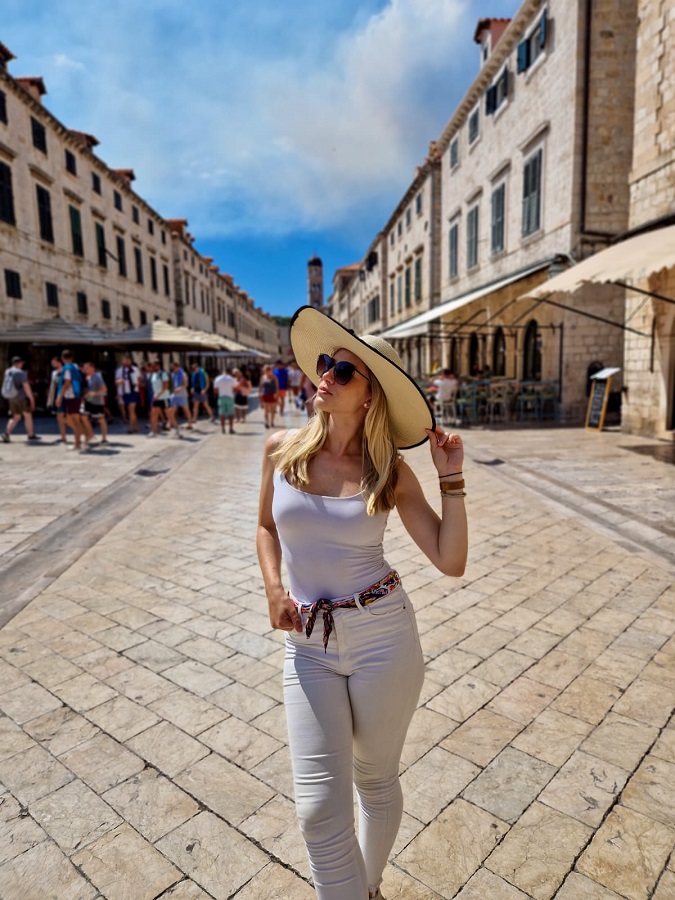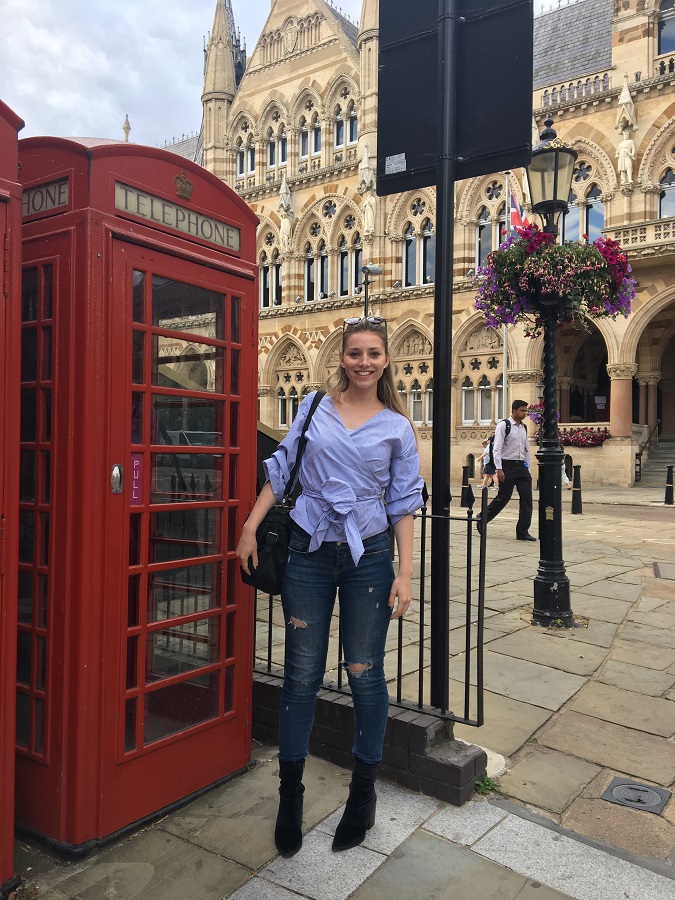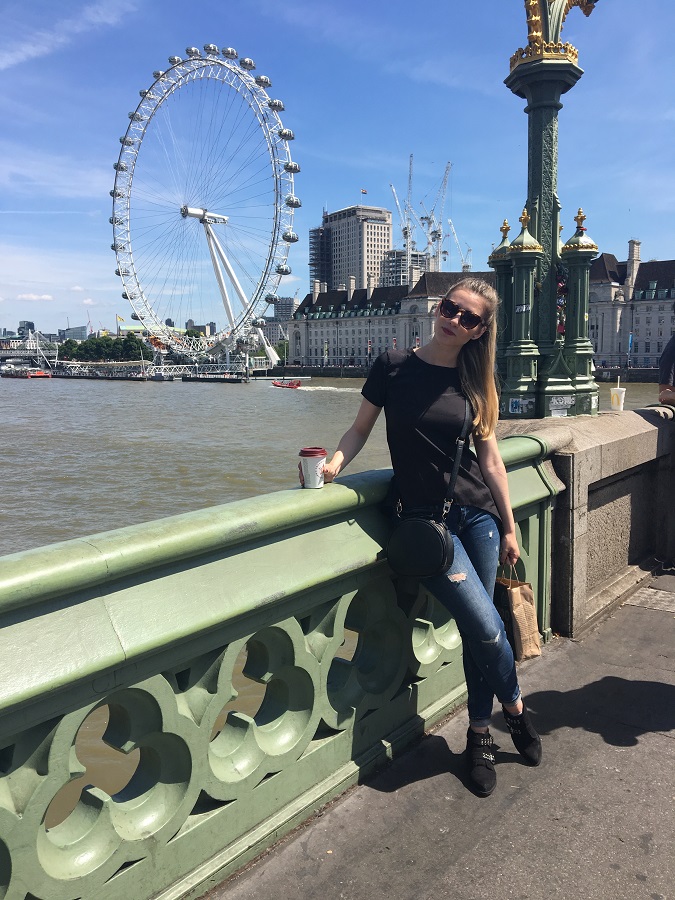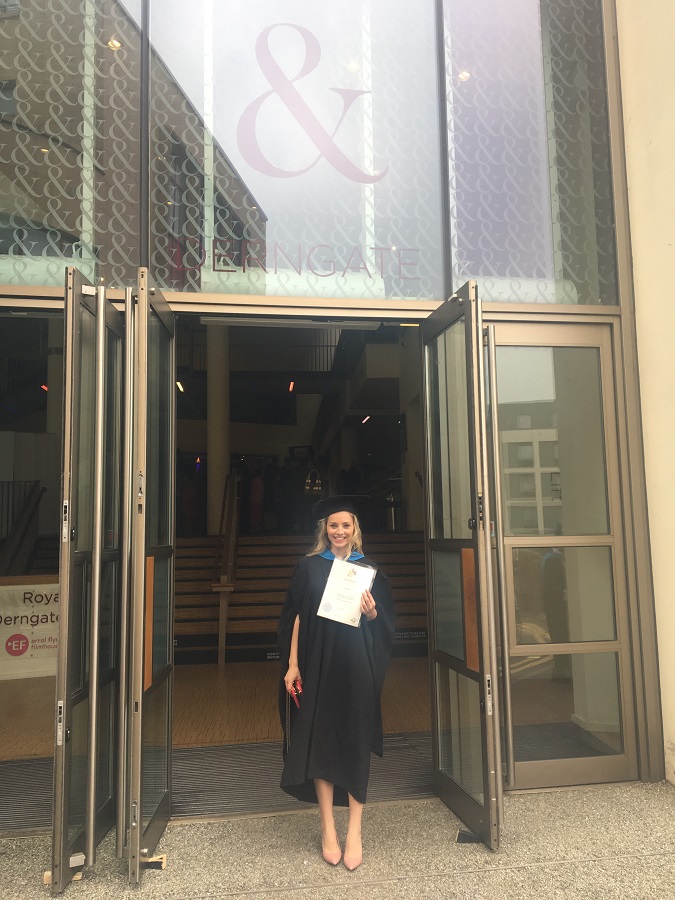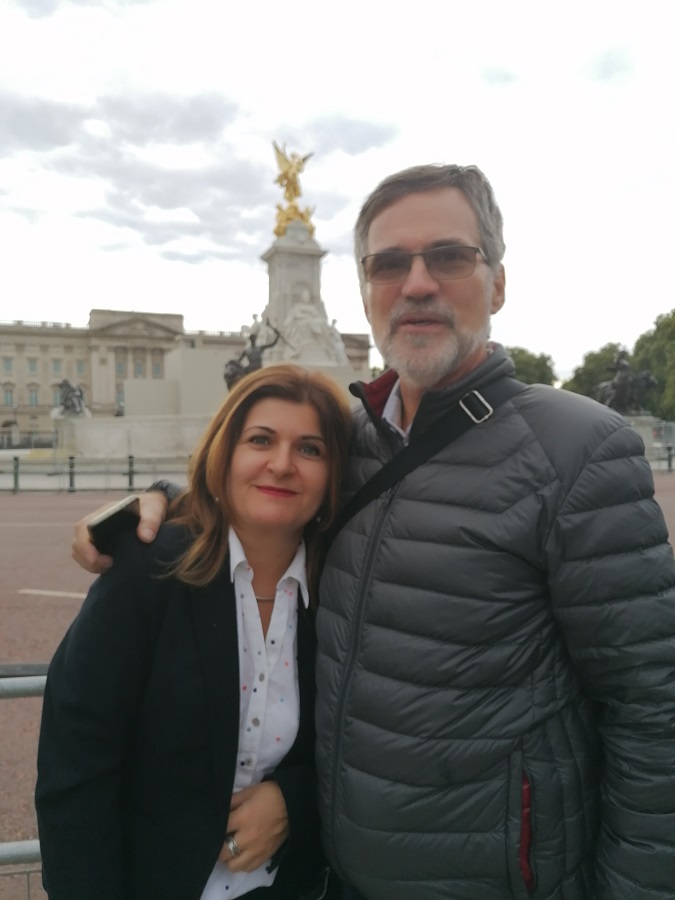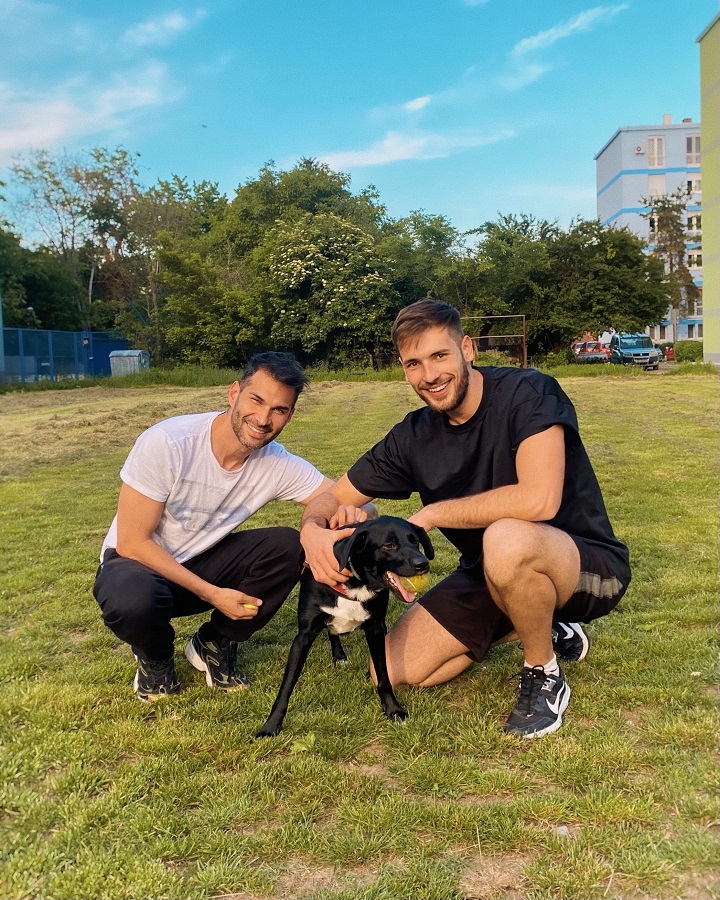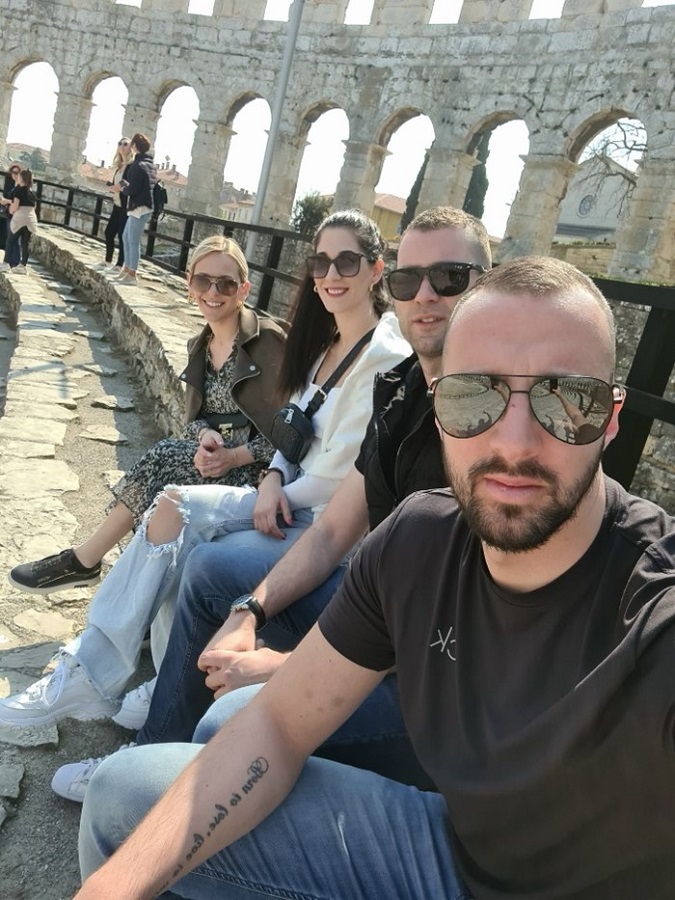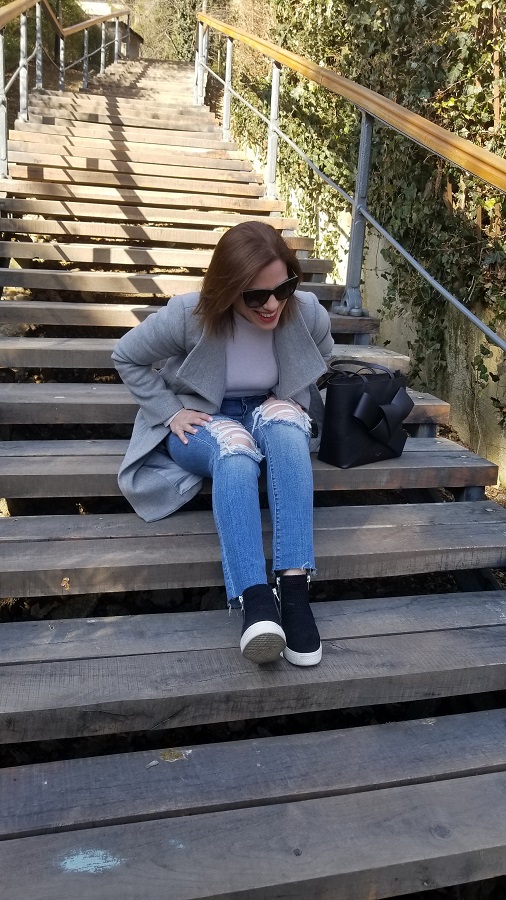Croatian Returnee Stories: Denis Vlahovac, from Vancouver CA to Daruvar
October 29, 2022 - Whisper it quietly, but more and more people are relocating to Croatia from the diaspora. In a new TCN series, we meet them to find out how they are faring and what advice they have for others thinking of making the switch. Next up is Denis Vlahovac, who moved from Vancouver CA to Daruvar.
My name is Denis Vlahovac, and I am a bar consultant and cocktail event manager. I own a company called Cocktail Empire that focuses on improving hospitality standards in Croatia through education and events. I promote the usage of locally grown products, connecting local producers with cafes and restaurants, and I am trying to implement new creative ways to use existing products in cocktails while lowering costs and making the business sustainable. I grew up in Daruvar, Croatia. After I finished University in Opatija in 2014, I moved to New York, and I lived abroad until the pandemic started in 2020. I visited 61 countries and lived in 5 countries.
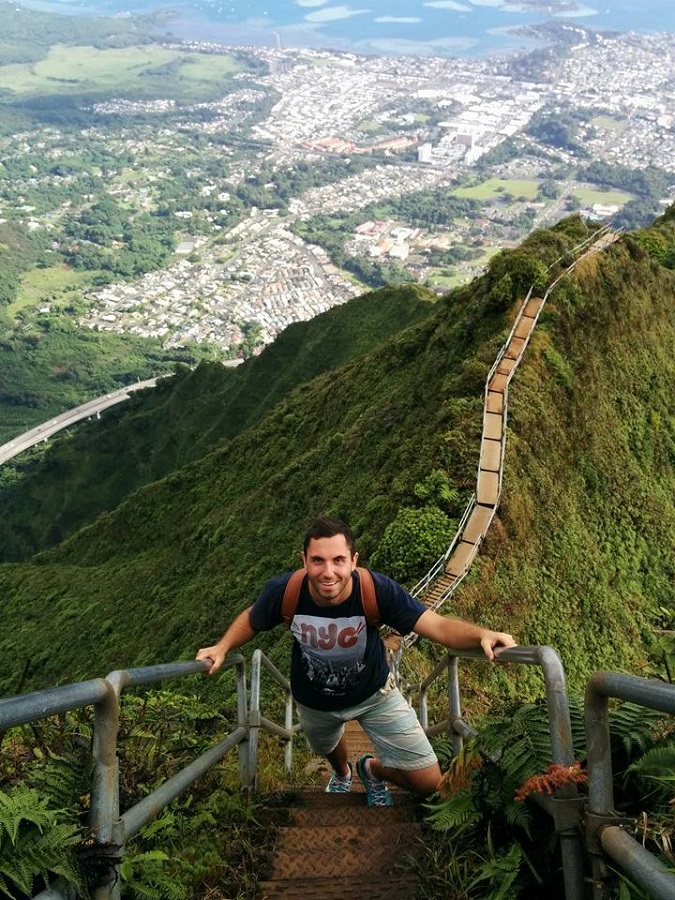
1. You made the switch to Croatia. Tell us a little about the decision process and how long it took for you to get on the plane.
Ever since I moved out of the country 8 years ago, I thought about what it would be like to actually go back to Croatia and work there. Did something change? Money was not the main reason I left (even though it was an important factor), but actually, the situation itself was with my university diploma, I actually had to know people to get a good job. Your skills didn’t matter much. When I moved out, I actually saw that if I worked hard, I could go places. And I worked hard and learned along the way. The decision to come back home was pretty much straightforward. I was forced to return to Croatia because of the pandemic. My Canadian visa expired, and I was unable to renew it. I barely managed to leave the country because I was on vacation in Alaska when it was decided that the border between Canada and the US was about to close the following day, so I rushed to the airport to return to Canada before it happened. The restaurant I worked at closed permanently the same week, so there was no other option but to go back to Croatia for, what I thought at that moment would be, six months.
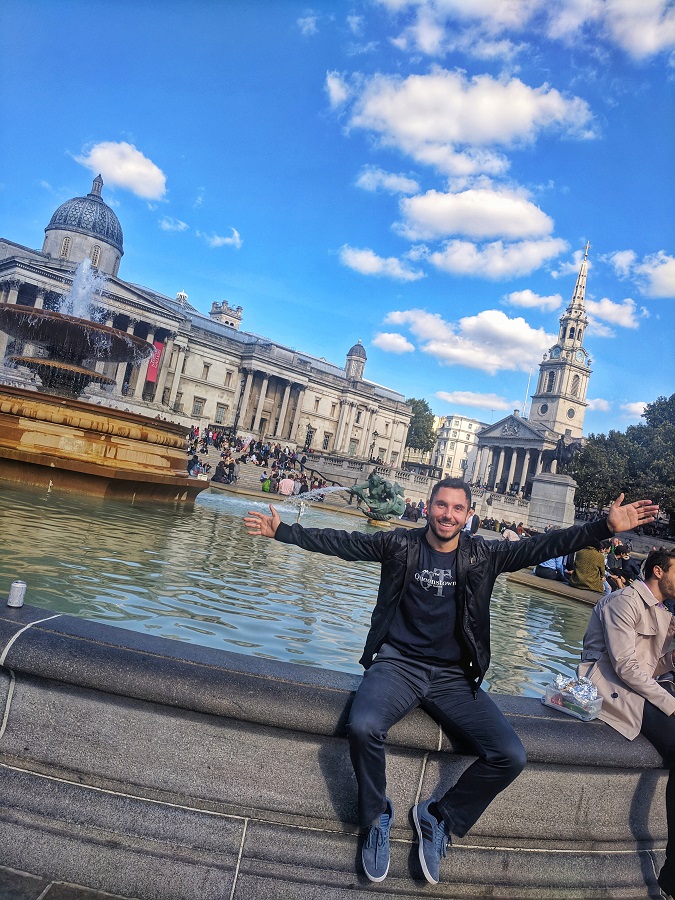
2. What did your family and community back home think of your decision at the time?
My family always wanted me to come back and to be closer to them, even though they supported me in my travels. They were always here for me when I needed them. I haven’t seen my parents or my friends back in Croatia for 2 or 3 years sometimes. When it was time to come back, neither they nor I knew it was going to be for good. And we all thought the pandemic was going to end in a couple of months and everything would be back to normal. The day of the flight, I had 2 flight cancellations and barely managed to get out of Vancouver to Montreal and from there to Brussels, only to realize that there was a huge earthquake in Zagreb that same morning. We managed to get there the same day, and my parents left a car for me at the airport, and I drove back home to Daruvar to self-isolate for 2 weeks.
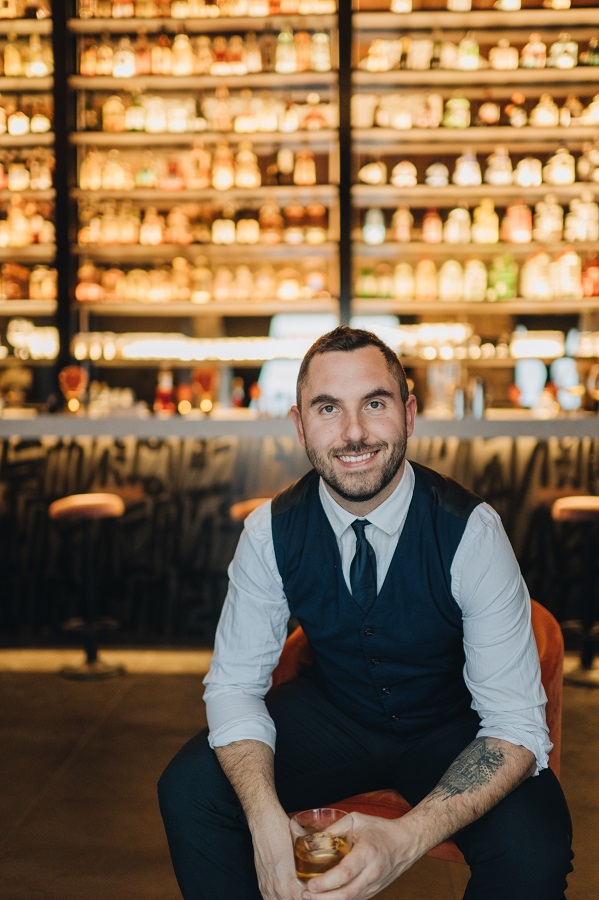
3. Where did you get your information about the realities of Croatia prior to coming?
I was reading Croatian media wherever I lived in the world. Most of the time, I was grateful I didn’t live there. But when you start reading the news about the country you live in, you realize that the news is the same everywhere. In Croatia, there’s a problem in the past with previous regimes but so is in Canada or New Zealand.
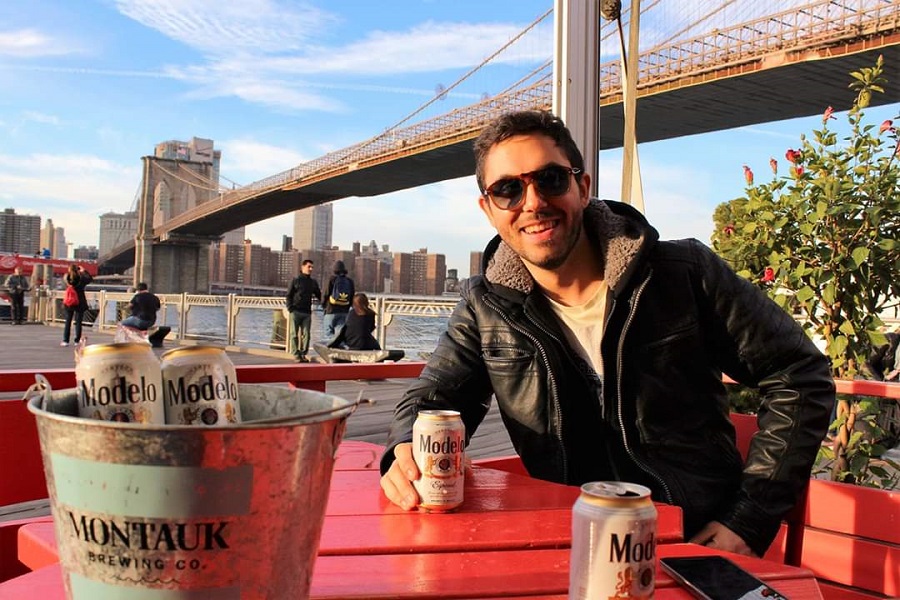
4. What were you most nervous about making the switch? What was your biggest fear, and what was the reality of what you found?
It was hard for me to think about Croatia when I made all the other places my home. I lived in New York for 3 years, and the hardest decision I made in my life was to leave New York. I had lots of friends and a great job. But I needed a change. I wanted to travel the world. At that time, I never imagined myself living back in Croatia. But things change, and people change. Now when I am in my thirties, I can see Croatia as a wonderful place to live in. And I try to hang out with people who think alike and really want to work on making this place even better.

5. Think back to the time before you arrived. What were your perceptions about Croatia, and how were they different from the reality you encountered?
I knew what Croatia was like in 2014, and I didn’t want to live there at that time. The people were great, but the situation was hard. I do not come from a wealthy family, nor do I live on the seaside where opportunities to get better-paying jobs are abundant. But after 6 years abroad, I started to think about Croatia more. I wondered if the situation has changed. After 6 months of being in Croatia in 2020. I realized that covid was not going to go away quickly, so I started looking for a job as a bartender. I thought salaries must be much higher now than they were in 2014. After a few job interviews, I was left speechless. The sheer disappointment I felt at that moment as I was walking away from a cocktail bar in Zagreb I just had an interview made me think about moving away again. But this time, it was impossible for me to leave. All my savings were melting away fast, and I had to think hard about what I wanted to do with my life. I saw the opportunity to start my own business and apply all the things I learned abroad to the Croatian hospitality scene in order to improve it. I decided to stay in Croatia for good this time.

6. You are still here, so obviously, the pros outweigh the cons. Tell us about some of the things that you love about being in Croatia, as well as some of the things you don't like.
What I love about Croatia is that it is really beautiful, people are easy-going, and it’s easy to make new friends there is a big potential for business growth, especially if you have something unique to offer to the market. Every part of Croatia has something unique to offer in regard to food and sights. It’s awesome to go to places like Baranja and Istria, Zagorje, and Dalmatia and experience great food and meet friendly people. I like the way of life here and being close to my family and friends. I do feel it is getting more and more westernized with a fast lifestyle and the constant run for the money, but it still has some of that chill vibe. Especially in smaller towns. What I don’t like is that it is a relatively small market, so unless you have something original or are extremely good at what you do, you will have a hard time succeeding. Another thing I find interesting is that Croatians always think of themselves as really hard-working, but I don’t see that in Croatia that much. Of course, there are hard-working people here, but not in the amount we like to tell ourselves. Bureaucracy is a constant problem, but it is getting better. The thing I feel is the most annoying in Croatia is that you need to know people to get good jobs and that people think and talk about other people's lives too much. Related to my love of traveling, what I hate in Croatia is the lack of railroad infrastructure and the lack of long-haul flights from Croatian airports. Especially in the winter.
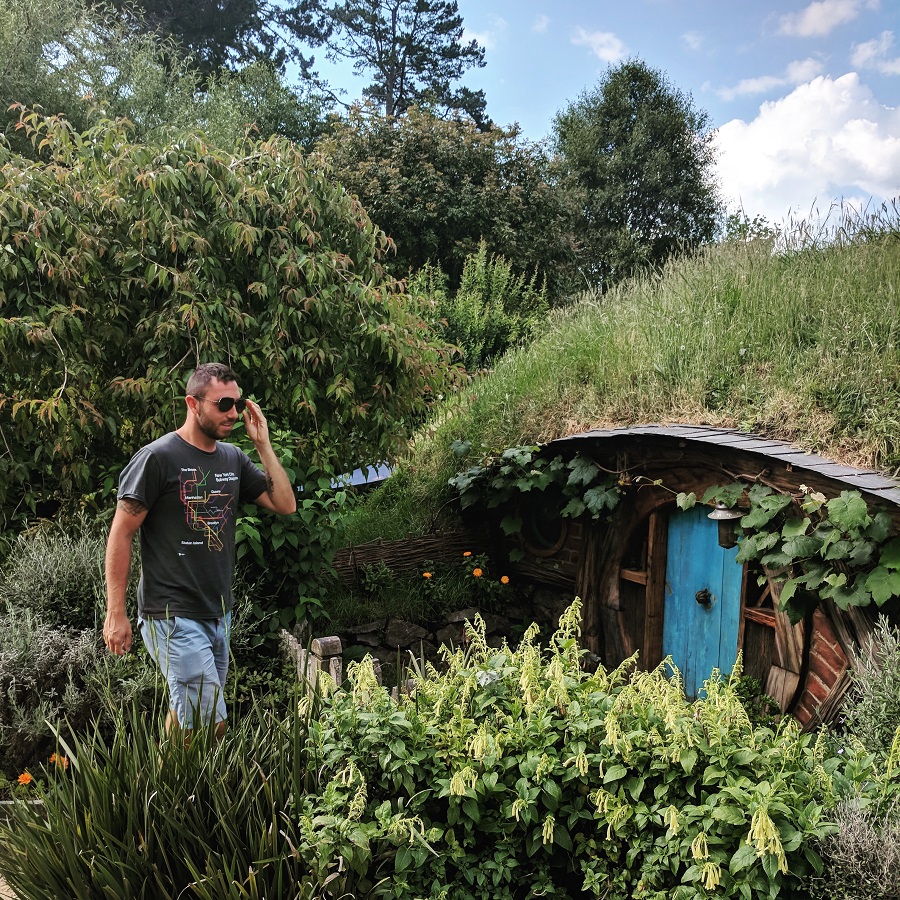
7. What advice do you have for others thinking about making a move from the diaspora?
If you need a relaxed lifestyle and are thinking about moving to a slower-paced country that has great food, good people, and a high potential for business growth, Croatia is an excellent choice. Especially if you are a high earner, you will find that Croatia has everything you need. You can go hiking, play different sports, enjoy the sun and visit 1000 islands, drink the finest wine, eat quality local food and hang out with friendly people. It is extremely safe and well-connected with the rest of Europe.
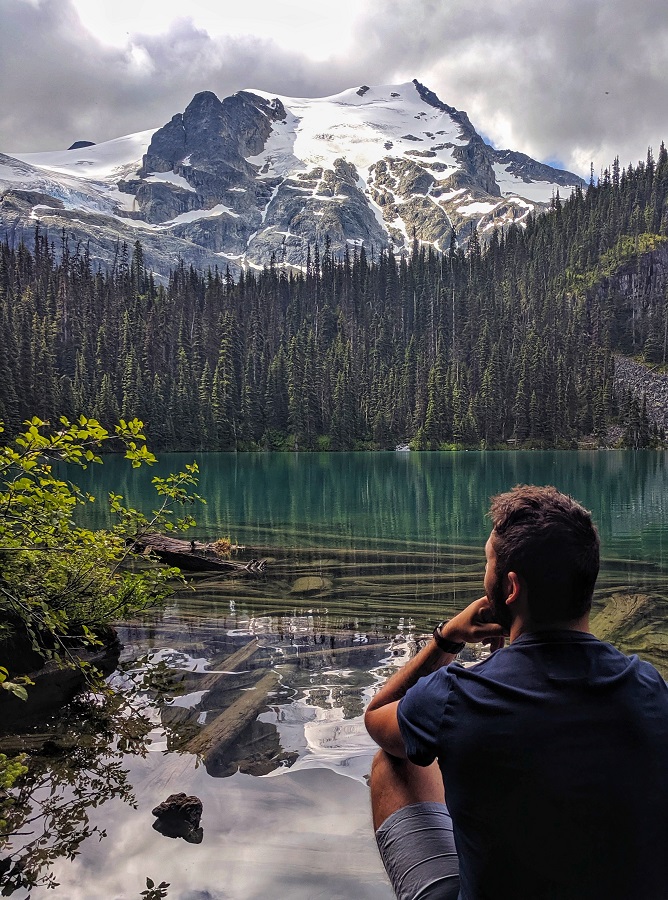
8. How do you think Croatia can better assist those who are looking to return to the Homeland?
I think the Croatian government missed the opportunity to keep Croatians that returned to Croatia during the pandemic in the country. Now it is hard for them to come back. I am one of the rare ones who decided to stay and build my life here. I think we should work on “stopping” the people from leaving Croatia permanently in the first place. It’s great for people to go abroad to study there or to get some work experience, and we should offer those people some benefits to come back to Croatia to use that knowledge to improve the local economy. Corruption is, unfortunately, still a big problem in Croatia, and we should all work together to get rid of it as much as possible. That is probably the main reason Croatians are leaving Croatia.
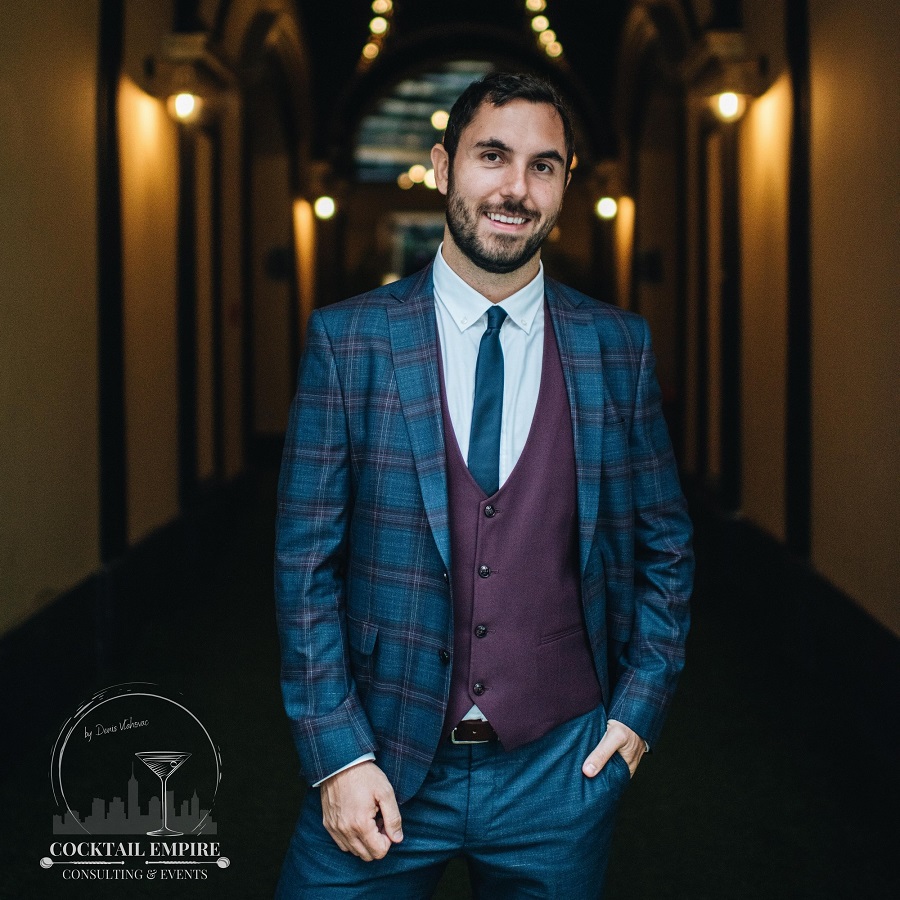
****
Thanks, Denis, and good luck with www.cocktailempire.hr
https://www.facebook.com/cocktailempireDV
https://www.instagram.com/cocktail.empire
https://www.instagram.com/denis.vlahovac
****
You can follow the TCN Croatian Returnees series here.
****
What is it like to live in Croatia? An expat for 20 years, you can follow my series, 20 Ways Croatia Changed Me in 20 Years, starting at the beginning - Business and Dalmatia.
Follow Paul Bradbury on LinkedIn.
Croatia, a Survival Kit for Foreigners is now available on Amazon in paperback and on Kindle.

Croatian Returnee Stories: Ida Hamer, from Northampton UK to Zagreb
October 19, 2022 - Whisper it quietly, but more and more people are relocating to Croatia from the diaspora. In a new TCN series, we meet them to find out how they are faring and what advice they have for others thinking of making the switch. Next up is Ida Hamer, who moved from Northampton UK to Zagreb.
Unlike most of the returnees in this new TCN series who lived abroad for decades, my journey as a foreigner was much shorter but extremely valuable to me. Today I’m a television reporter and a journalist – but almost 10 years ago, I was a girl with a dream to study abroad. I was born in the capital of Croatia, Zagreb. I had only just turned 19 when I finished high school and moved to the UK to study Multimedia Journalism at the University of Northampton. All by myself, without knowing a single person there, that “adventure” was exciting and frightening at the same time. The life experience I gained there is something I would never obtain or experienced if I had stayed in Croatia, and it is something I will always appreciate. However, after graduation, my heart said – it was time to get back home.
1. You made the switch to Croatia. Tell us a little about the decision process and how long it took for you to get on the plane.
When I decided to return home, it was also a time when many of my peers in Croatia decided to move to another country. So, my decision wasn’t quite popular and was surprising to many. It took me a bit of thinking whether “should I stay or should I go.” But when I graduated, the decision came naturally to me. I was ready to pack my UK experiences and memories in my luggage and start a new chapter at home.
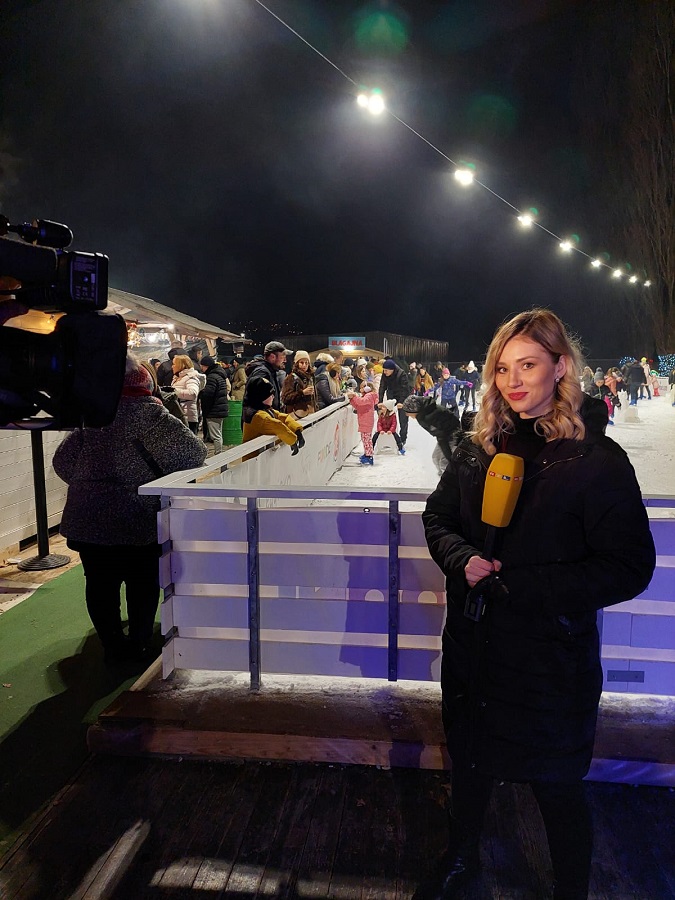
2. What did your family and community back home think of your decision at the time?
My family was supportive. They knew this decision was mine to make. However, there were those who were surprised. Some thought it was a great decision; some thought that I must be, well, crazy. Many expected I would continue my life overseas since I finished University abroad. And even though that seemed a bit discouraging, given the atmosphere in the country at the time, I did understand where this questioning was coming from.
3. Where did you get your information about the realities of Croatia prior to coming?
I knew mostly everything because I lived in Croatia prior to moving to the UK, however, now I saw things from a different perspective. I understood that some things at home might be a struggle, but I also felt that anything is possible for a person who is willing to work hard. When I was leaving Croatia, even as a teenager, I was frustrated with corruption, nepotism, bureaucracy, and, in general, the bad atmosphere in the country. But living in the UK also made me realize all the positives that Croatia has. I missed the sun and the seaside, Zagreb’s city center, coffee culture and our humor, and all those little things that make life here nice. So, when I moved back here, at first, I saw everything through rose-colored glasses, which also wasn’t good.

4. What were you most nervous about making the switch? What was your biggest fear, and what was the reality of what you found?
My biggest fear was – what if I ever regret moving back to Croatia? Up until now, I still haven’t.
5. Think back to the time before you arrived. What were your perceptions about Croatia, and how were they different from the reality you encountered?
At first, my perception was colored pink. Now, I look at everything much more realistically.
6. You are still here, so obviously, the pros outweigh the cons. Tell us about some of the things that you love about being in Croatia, as well as some of the things you don't like.
I love that people here socialize, spend time with each other, talk, and laugh. I appreciate that I feel safe on the streets of my city. I love the life I built for myself here since I returned. I like that I can be at the seaside in two hours if I wish and can also visit all the neighboring countries in a couple of hours too if I decide to make a quick weekend getaway. On the other hand, and like most young people here, I dislike nepotism and corruption. I dislike how slowly things are changing for the better around here. For example, population decline has been one of the hot topics here for many years now, yet we do not see a systematic effort to tackle this challenge. There is definitely not enough effort put into getting young people to stay here. And while the population is facing a decline, the number of people living in poverty is increasing. This is a sad reality for a state with so much potential.
7. What advice do you have for others thinking about making a move from the diaspora?
Connect with people online and talk! There are so many different pages where people who went through similar experiences will happily share it with others and answer all the questions.
8. How do you think Croatia can better assist those who are looking to return to the Homeland?
Firstly, I have to say I applaud all the people behind websites that are offering advice and resources to foreigners and the diaspora on how to live and work in Croatia. They are untangling many Croatian bureaucratic entanglements that are foreign not only to foreigners or the diaspora but also to Croatians who live here. These people are taking a lot of burden off the government, as people are finding the right answers on those pages rather than contacting and asking these questions the relevant government offices. However, I do hope that one day the Croatian government will have a similar page where all the resources will be in one place and where it will be clearly outlined what services the country provides and where. I really hope the government will make the bureaucratic procedures simpler and that most things will be able to be done digitally. Until that beautiful, sunny day happens, if moving to Croatia, arm yourself with patience and humor.
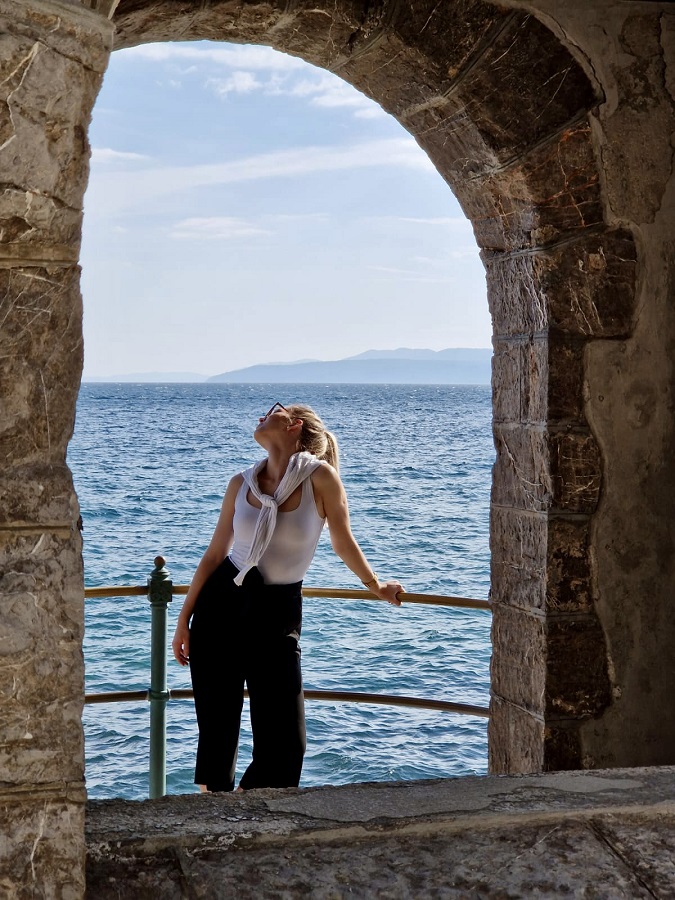
****
Thanks, Ida, and good luck with https://idahamer.com/
https://www.linkedin.com/in/ida-hamer-026461111/
****
You can follow the TCN Croatian Returnees series here.
****
What is it like to live in Croatia? An expat for 20 years, you can follow my series, 20 Ways Croatia Changed Me in 20 Years, starting at the beginning - Business and Dalmatia.
Follow Paul Bradbury on LinkedIn.
Croatia, a Survival Kit for Foreigners is now available on Amazon in paperback and on Kindle.

Croatian Returnee Reflections: Zeljka Tomljenovic, from London to Zagreb
October 8, 2022 - Whisper it quietly, but more and more people are relocating to Croatia from the diaspora. In a new TCN series, we meet them to find out how they are faring and what advice they have for others thinking of making the switch. Next up is Zeljka Tomljenovic, who moved from London to Zagreb.
I was born in Slavonski Brod, where I went to primary school then I went to secondary school in Bosanski Brod. I completed the rest of my formal education at the University of Novi Sad. This variety of places where I lived in Former Yugoslavia seems to set me up for my future of travel in the years to come. Then my life brought me to London, where I lived and worked for the next twenty-six years where I experienced the life that only metropolitan cities can provide. My work there was in the event management industry, and also I volunteered for the charity organization, The British-Croatian Society.
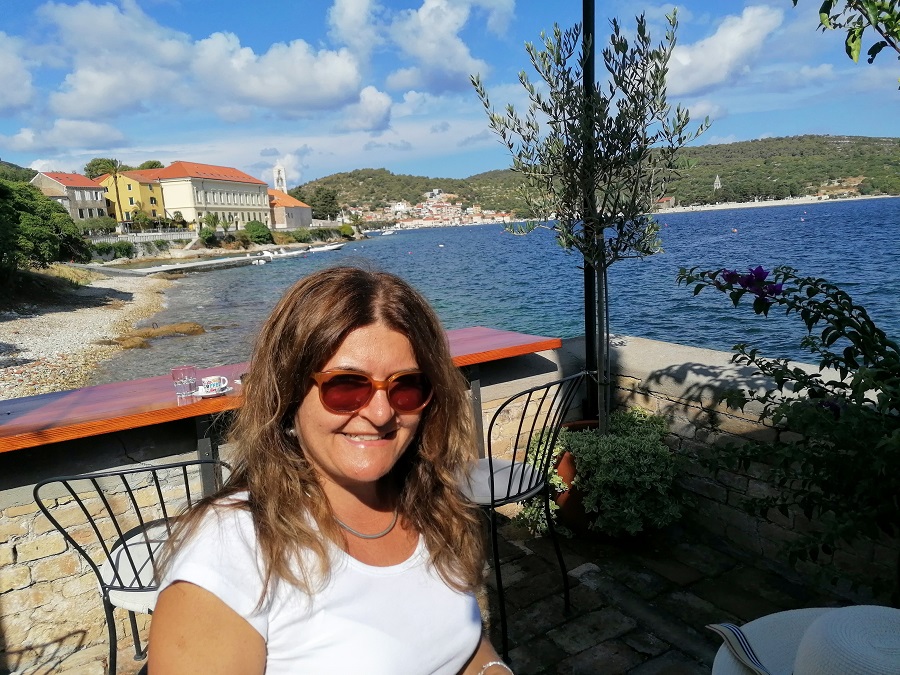
1. You made the switch to Croatia. Tell us a little about the decision process and how long it took for you to get on the plane.
Funny to say, but it was not a decision at all. It was rather an accidental step that had happened swiftly without my consideration that brought me to Croatia. When I realized that the Paddington area, where I worked, as well as the whole of London, was getting emptier by day to day due to the Covid-19 closure, I had to pack up my stuff and secure one of the last seats on a plane to Zagreb.
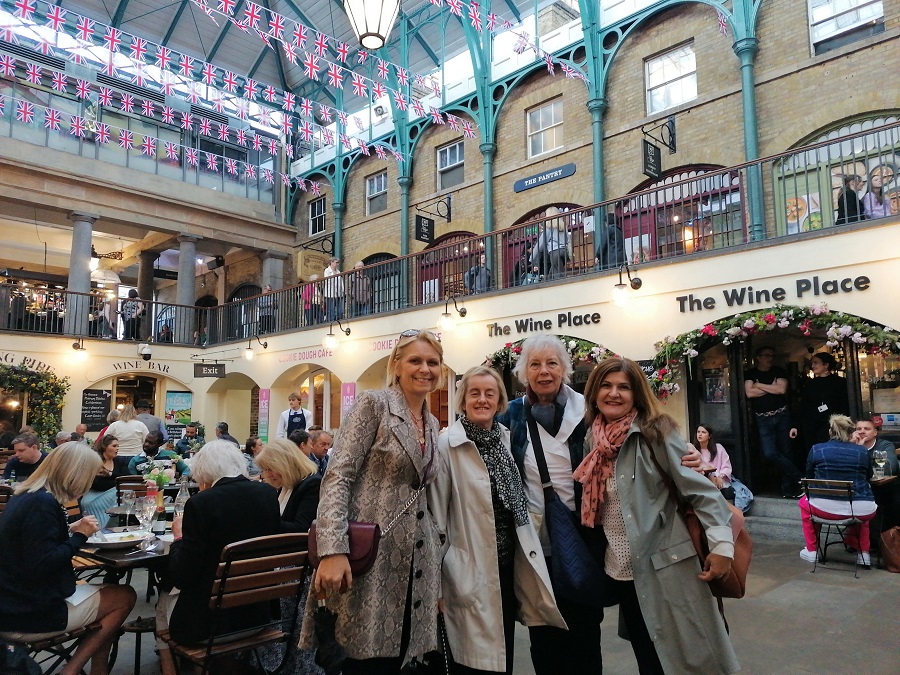
2. What did your family and community back home think of your decision at the time?
When I arrived in Zagreb, the situation and outcome of the Covid-19 crisis were very uncertain, so my return at that particular moment seemed a logical step regarding the circumstances. At that time, I started working from home, believing that it would be just a temporary solution. I felt very supported by my family and friends. As the whole world around me was closing down, coming back to Croatia was a move in the right direction and at the right moment. The funniest reactions on my return I am still receiving from those people that have never lived abroad. They normally look me in the eye with a bit of pity, asking me whether I am really aware of what I've done :-).
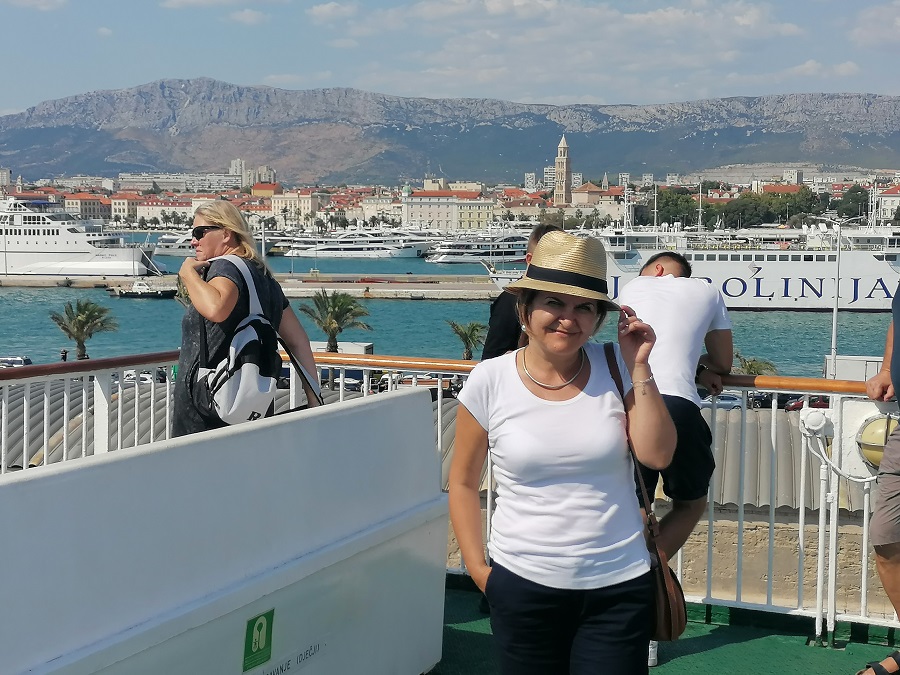
3. Where did you get your information about the realities of Croatia prior to coming?
My touch with Croatia and its reality was continuous through the years I lived in the UK. Also, through my activities with The British-Croatian Society, the charity organization that promotes links between HR & UK for many years, I kept my relations with both countries widely open.
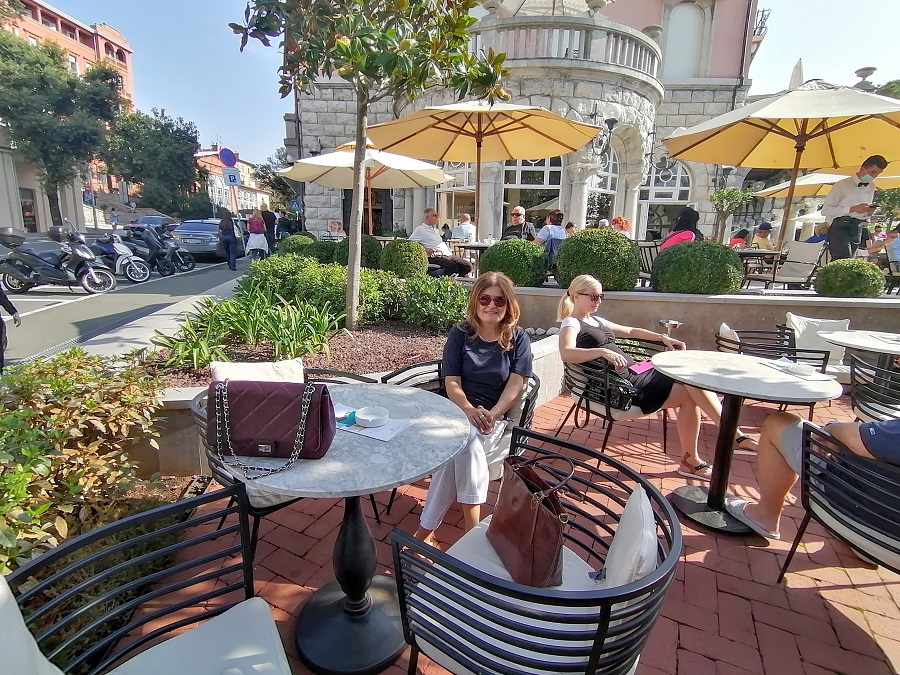
4. What were you most nervous about making the switch? What was your biggest fear, and what was the reality of what you found?
It was a very big decision. No doubt about that. My life and work were set up in London, I was always on the go, I had a lot of friends and colleagues there, and I had a busy social life. I was not surprised by anything I found here as I was coming to Croatia quite frequently, and I was fully aware of its reality.
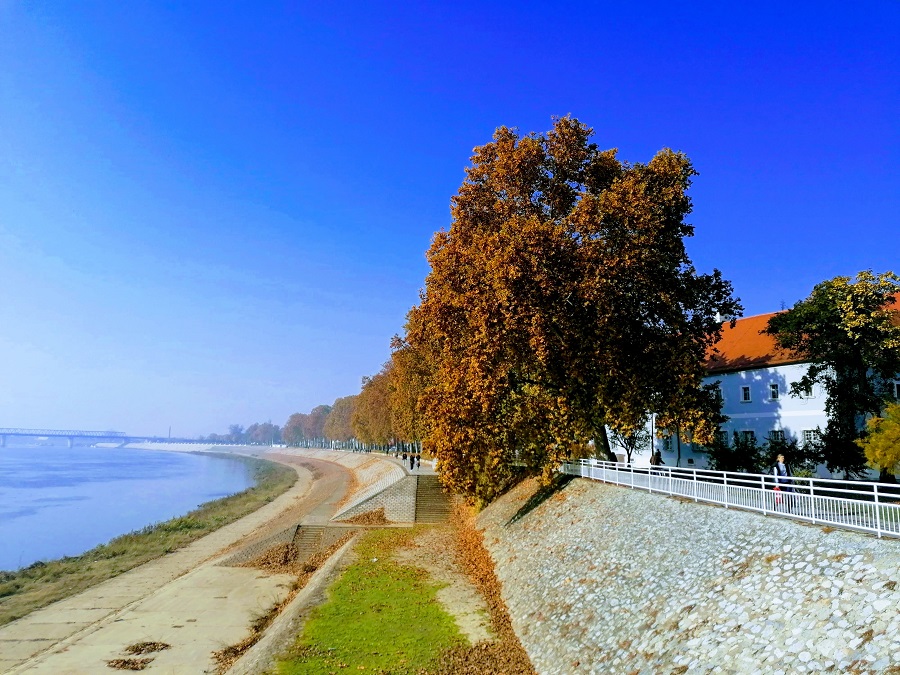
5. Think back to the time before you arrived. What were your perceptions about Croatia, and how were they different from the reality you encountered?
Life is not always greener on the other side. Once you make a permanent living in a place, it is not going to be the same as the one you remember from going on holiday. In my own experience, I have gained by this move that the freedom to do with my time what I like and not somebody else is the most valuable asset of mine. I have my free time on my hands, and I can do with it whatever I like. I could not dream about that in my previous life in London, where I knew my agenda months ahead, and most of my time I was spending just working.
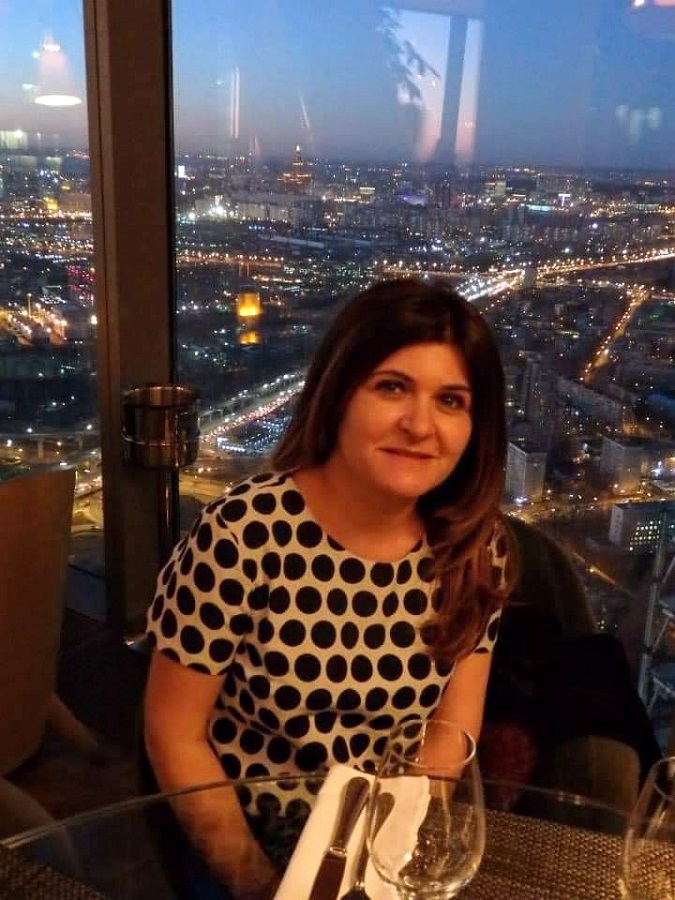
6. You are still here, so obviously, the pros outweigh the cons. Tell us about some of the things that you love about being in Croatia, as well as some of the things you don't like.
The best thing about my accidental return to Croatia is the more free time I have here. The pace of life is much slower here than in London. There's always the possibility to find time for a coffee with family and friends, personal interests and hobbies, or whatever your interests are. However, dealing with the unavoidable bureaucracy in Croatia is a tough matter, and that's an understatement. Be prepared to visit many government offices in order to get one single document. The same document in the UK you would get by simply pushing the button on your computer. Croats are not very good at respecting the rules of queuing. Getting in and out of public transport is very often a nightmare, and the best sample of that. Another thing that I hate in Zagreb is the rundown gray facades of beautiful former palaces mostly covered by ugly graffiti, which are actually nothing more than pure vandalism. Then permitted smoking in most coffee shops, widely spread corruption, poverty among a huge number of the population ... that's just to get me started.
7. What advice do you have for others thinking about making a move from the diaspora?
I would advise everybody considering the possibility of moving to Croatia to get informed as much as possible about the Croatian reality through different sources. They must be ready for a different lifestyle, habits, and mentality completely different from the one they have used to. Nothing is 100% perfect neither is everything so bad. There's no perfect recipe for success - everyone should have their own experience. Let them step out of their comfort zone with open eyes and open minds seeking the positive sides of Croatia. Let them enjoy new opportunities in life that Croatia offers.
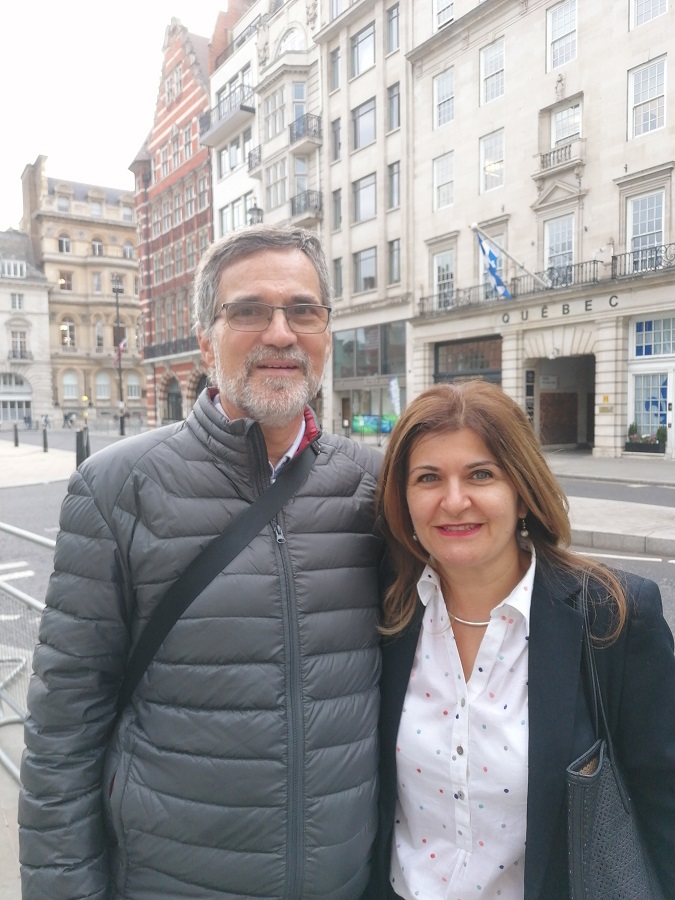
8. How do you think Croatia can better assist those who are looking to return to the Homeland?
It has to be the government's decision to support and stimulate people to settle in Croatia enforced by its real action giving them reasons why they should live in Croatia. They would help those willing to learn the language and integrate into society. They would make the bureaucratic procedures simpler; they would establish centers for language learning, give advice on how to find a place to live, etc.
A brilliant sample of individual initiatives opposite of slow government-run organizations is the project Digital Nomads, set up by Mr. Jan de Jong. What a wonderful project that made a huge difference in terms of the contribution of qualified foreign workers moving into Croatia.
****
Thanks, Zeljka, and good luck with https://www.britishcroatiansociety.com/
You can follow more stories in the Croatian Returnee Reflections series in our dedicated TCN section.
Would you like your returnee story - positive or negative - to be featured in this series? Contact This email address is being protected from spambots. You need JavaScript enabled to view it. Subject Returnee.
****
What's it like living in Croatia, and where can you get the best survival tips? TCN CEO Paul Bradbury and TCN Editor Lauren Simmonds have teamed up to publish Croatia, a Survival Kit for Foreigners.
Follow Paul Bradbury on LinkedIn.

Croatian Returnee Reflections: Katarina Bucic, from Toronto to Zadar
October 3, 2022 - Whisper it quietly, but more and more people are relocating to Croatia from the diaspora. In a new TCN series, we meet them to find out how they are faring and what advice they have for others thinking of making the switch. Next up is Katarina Bucic, who moved from Toronto to Zadar.
My name is Katarina Bučić; I was born and raised in the Greater Toronto Area. I lived in Canada with my parents, who moved to Toronto 30+ years ago from Posušje, Hercegovina, and my 4 brothers for 27 years. I worked as a Registered Massage Therapist in the city and was starting to grow tired of its fast-paced and high-stress energy. After I got married to my husband Josip Bučić in 2016, we decided to move out of the city to slow down life a bit and take our first trip to Croatia together as a married couple, my first time visiting in 12 years. I was so eager to revisit my family and soak in my heritage as I was always raised to be a proud Croatian in a multicultural country and to be connected to my roots.
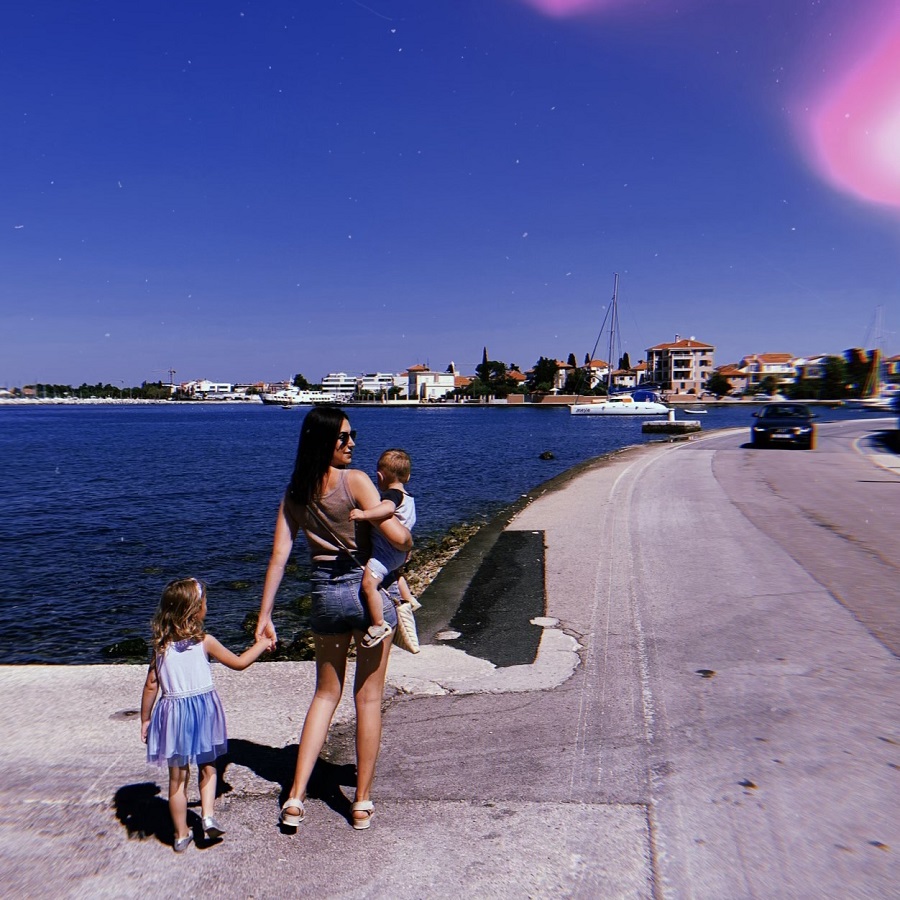
1. You made the switch to Croatia. Tell us a little about the decision process and how long it took for you to get on the plane.
The summer vacation my husband and I took together in 2017 was the catalyst for us returning to Croatia one day. My husband's family is from Zadar, and so we spent most of our time there. It did not take me long to fall head over heels in love with Zadar as a city! The beauty, the ancient walls, and the cobblestone streets. The beaches, the sunrises, and the sunsets on the water. The fresh air, fresh food, and moments are created around the dinner table. The slow pace, the laid-back attitude, and the social culture. I can go on for ages about the magic I felt that summer. The entire trip, my husband and I spoke about the Croatian lifestyle and how different it was from our lives back in Canada. We fell in love with Zadar so much that I said if I were ever to have a daughter, we would name her Zara.
When we arrived back in Canada, we both fell into a sort of funk. We really tried to hold onto the energy and vibe of Croatia once we returned to Canada, but it just wasn’t the same. For years following that trip we talked about our dream of moving back to Croatia someday. There were many game plans, pros and cons lists, and bouncing ideas off of our family and friends. Many people didn’t think too much of our conversations because they always assumed it was just a ” one-day” type of dream, but they didn’t know how we felt that summer in Croatia and how we craved that feeling ever since we left. One evening during pillow talk with my husband Josip, having our 1000th conversation about dreaming to move to Croatia, I had finally had enough. ”You know what?! I am tired of talking about this over and over again. Are we going to do this or what?! Let’s decide right now, you and I, should we chase this dream of ours?” Josip looked over at me with a big smile and said,” Let’s do it!!!”. The next day when he returned from work, I said,” Guess what, babe? I bought us one-way tickets. We are moving to Croatia in 2 weeks.” He nearly fell to the floor. Just like that, Josip, my daughter Zara and I were heading on a new adventure!
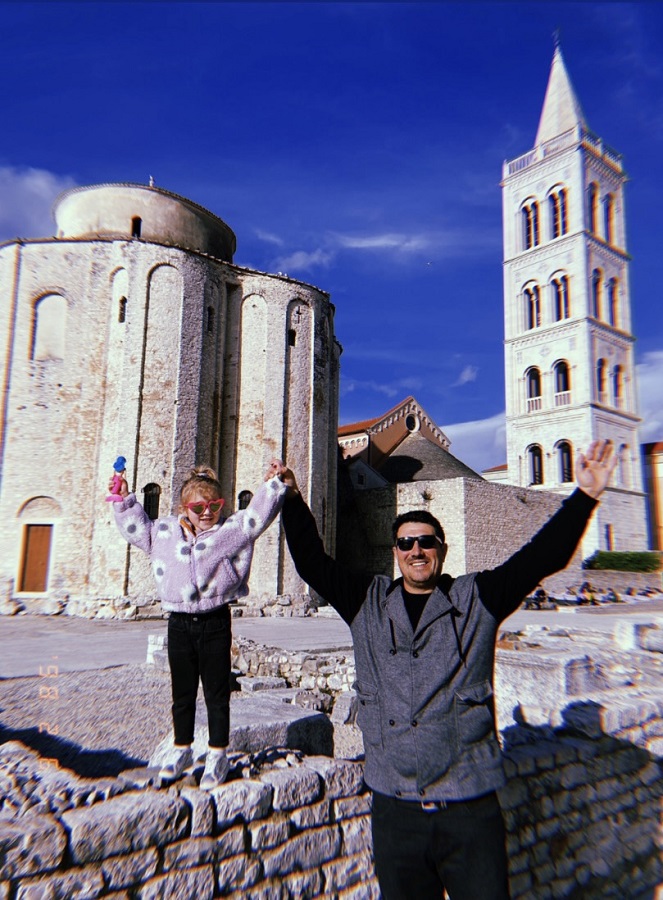
2. What did your family and community back home think of your decision at the time?
As I had mentioned earlier, our family and friends have heard us dream about moving back for years, but I don’t think anyone thought we would actually do it. Once everyone found out that we had actually purchased one-way tickets, the support had an undertone of sadness. Some people thought what we were doing was the most exciting and inspiring act, others thought we were complete morons and doomed, and those closest to us we so happy for us but sad that we were leaving. In all honesty, I feel like many of our friends in the Croatian community have always dreamt about moving back but had self-limiting beliefs. I think they were hoping for us to fail so that they could reassure themselves that their dream is not attainable. It was quite discouraging to hear comments like ”I’ll see you back here in a year” or ”What are you going to do over there? You know there is no work, right? Even if you find work, nobody will pay you reliably” and the most popular from the women ”You know they treat women poorly there right? Josip will change, and your marriage will suffer”.
3. Where did you get your information about the realities of Croatia prior to coming?
I supposed we did not do too much research. We did not know any people close to us who have made a move as well, so we didn’t have anyone to ask for their personal experiences. We knew that we would be applying for residency and citizenship upon arrival, so we came prepared with all of our Canadian documents and had them certified and translated. The rest of our perception of reality in Croatia was based on our summer there in 2017. Josip and I were on the same page about what we wanted out of life and what we wanted our lifestyle to look like, and we were both sure that Croatia could provide that for us.
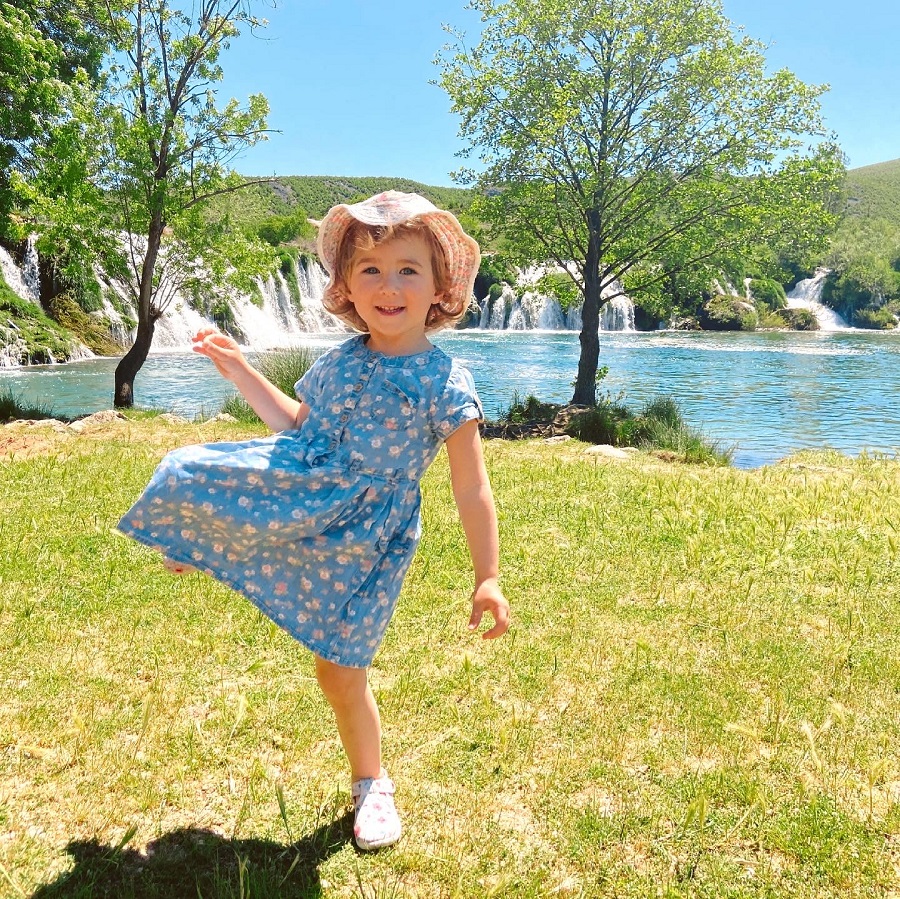
4. What were you most nervous about making the switch? What was your biggest fear, and what was the reality of what you found?
We made a move so quickly that it didn’t leave us much time to worry, but rather get things done! As a lovely add-on to the major life change we were about to encounter, 4 days before we left, I found out I was pregnant with my second child, surprise! I immediately began worrying about obtaining health care and what the hospitals are like in Croatia, and what my birthing experience would be like. After arriving in Croatia, I realized that my fear would soon become a reality. When I think about the bureaucracy here and having to get any sort of government paperwork done, the first word that comes to mind is NIGHTMARE. As I continue to meet other expats and even locals, I would say that is easily the biggest problem in Croatia. I cannot tell you how many times I stood in line pregnant and holding Zara for 3+ hours only to be told that they can’t help me and that some completely random and illogical paperwork or process was missing. I had so much anxiety every time I walked into a government building because I never knew what I would hear. That I missed a step in the process and can be issued a fine, that they will kick me out of the country if I don’t get my papers sorted before the deadline, or that I will not obtain public health care before I go into labor with my son. I quickly learned that Croatia is a very ”it’s all about who you know” kind of place. I got practically nowhere to obtain residency and health care on my own. Luckily my husband has many aunts, uncles, and cousins here that were willing to help. They showed up to the meetings with me, spoke on my behalf, showered the government workers with homemade olive oil and chocolates, name-dropped a few people, and VOILA, I was finally getting somewhere. As grateful I was to have those connections and finally have some progress, I was utterly shocked that this is how the system operated and felt deeply sad for the people moving here who didn’t have those connections.
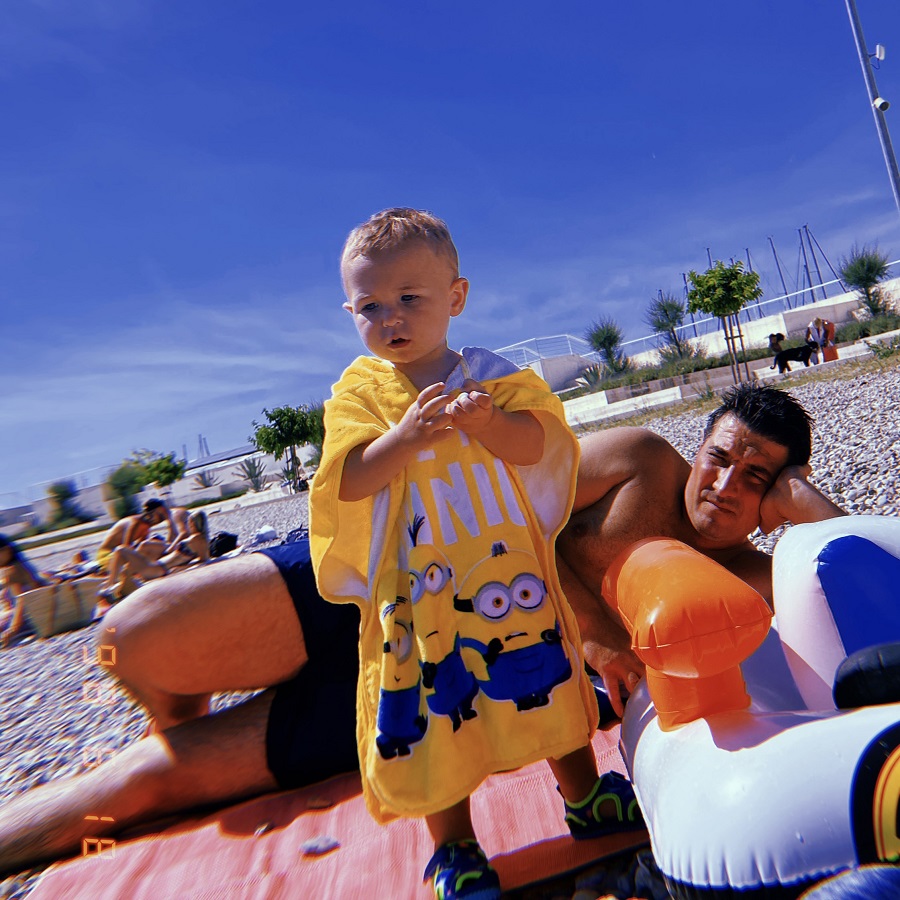
5. Think back to the time before you arrived. What were your perceptions about Croatia, and how were they different from the reality you encountered?
Naively, I had the perception that our return to the motherland would be celebrated by the locals. With the economy in Croatia suffering and many young people choosing to live and work elsewhere, I thought our young family coming to lay roots and contribute to Croatia would have been embraced. I must say there were some wonderful locals who were very proud of us, but the overall judgment, resentment, and outright mocking from the locals really shocked me. Just like many of the people back home, there were Croatian locals who were also laughing about us failing and returning home with our tails between our legs. Luckily for us, we have that stubborn Croatian blood and used that stubbornness to propel us into creating the reality we dreamed of!
6. You are still here, so obviously, the pros outweigh the cons. Tell us about some of the things that you love about being in Croatia, as well as some of the things you don't like.
The people of Croatia, just like the rest of the world, have been sold the ”American dream”. When they scratch their heads in question about why we would leave the ”land of opportunity” to move to a poor economic country, I would reassure them that their perception of North America is warped. Do not get me wrong; I am so grateful I was raised in Canada and was exposed to such an open-minded and multicultural environment. Although the Canada my parents moved to in the 80s and the Canada I lived in before leaving were two very different places. Josip and I grew tired of the 4 hours on the road everyday commuting, on dangerous winter roads, I might add, the ”it's never enough” greed that was sweeping our culture, the constant arguing over religion and politics, the unhealthy lifestyles we were leading, and the lack of social life. I was starting to feel ourselves, along with everyone else around us, turn into robots. We only had time for work, sleep, and repetition, and there was no spontaneity left in our lives. Paying your bills and keeping up with the Jones’ was taking over like a plague, and we were sick of it! Since moving to Croatia, our days feel longer, our lives sunnier, and our future brighter. They say Zadar has 300 sunny days a year, and that is exactly how I would describe our life here, sunny! Fewer hours a day spent in Toronto traffic means more time to cook a fresh homemade dinner, stop by a neighbor's house for a coffee, or our nightly walks through the stunning city of Zadar. People are so much more at the moment here; they smell the air, notice the wind, and indulge in the people in front of them. I have yet to be with someone and have them have their face on their cell phone or be in a daze worrying about work the next day. The magic of living in the moment is so evident here and is truly what Josip and I value the most.
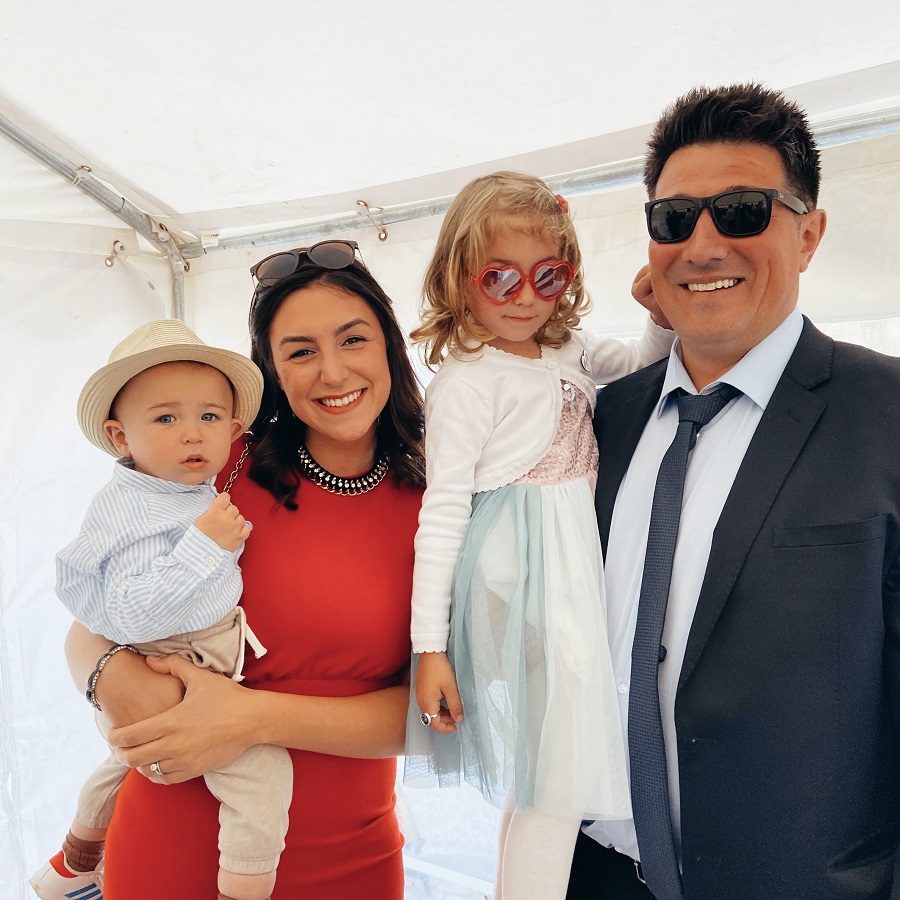
7. What advice do you have for others thinking about making a move from the diaspora?
I would first like to say that I believe true happiness comes from within. Whether where you are is ”heaven” or ”hell” is all based on your perception. If you have an open mind, a determined spirit, and a passion and love for Croatia, you can do it! There is a massive expat community here that is beyond welcoming and helpful and is a great support system for one another. Our dream of moving here was nagging at us for years, and finally answering the call for change has been the best decision we have ever made for our family. If you are seriously thinking of moving to Croatia, then there is clearly something pulling you to shake up your life a bit! There will definitely be moments where you might, in fact, feeling shaken. I have had moments of frustration and have felt homesick. In those moments, my husband, my children, and I go for a walk in Zadar, watching the most beautiful sunset in the world while the sea organs play and laughter and a sense of calm fill the air, and I immediately feel at peace again. My perception of my life in Croatia with my family is truly my idea of ”heaven on earth”.
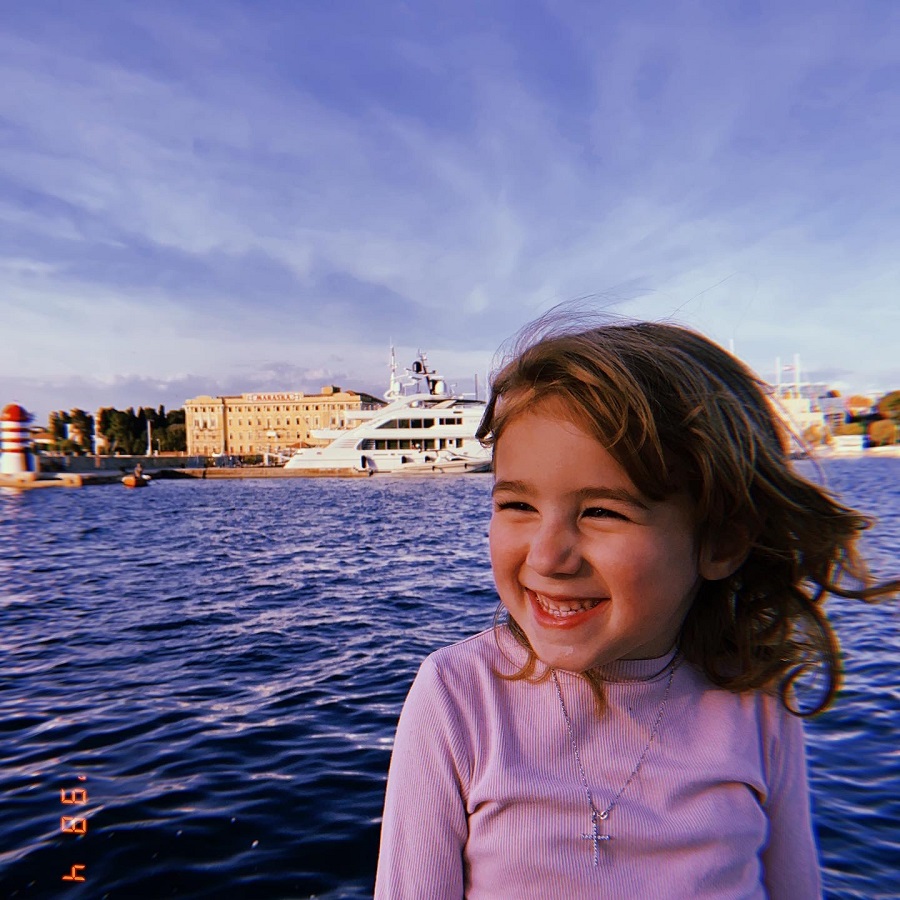
8. How do you think Croatia can better assist those who are looking to return to the Homeland?
People all around the world are discovering Croatia and understanding its beauty and the appeal of living here. I have no doubt that the expat community will continue to grow rapidly, and I would love to see them be more embraced here. The problem with the bureaucracy is not one I know how to fix, but it is by far the biggest hurdle people encounter when moving here. Perhaps more information and English-speaking assistance for newcomers would be a good start. As for the tainted mind of the locals and their hesitancy towards expats, I wish for them to understand that we love their country so much that we decided to give everything up to live there! I would love for them to receive us as a compliment and not as a threat. Croatia is a growing and quickly evolving country. I think we can find the balance of respecting its untouched and rooted energy while accepting the open-minded and positive energy we expats bring. Croatia is abundant, and there is enough of her beauty to sustain us all.
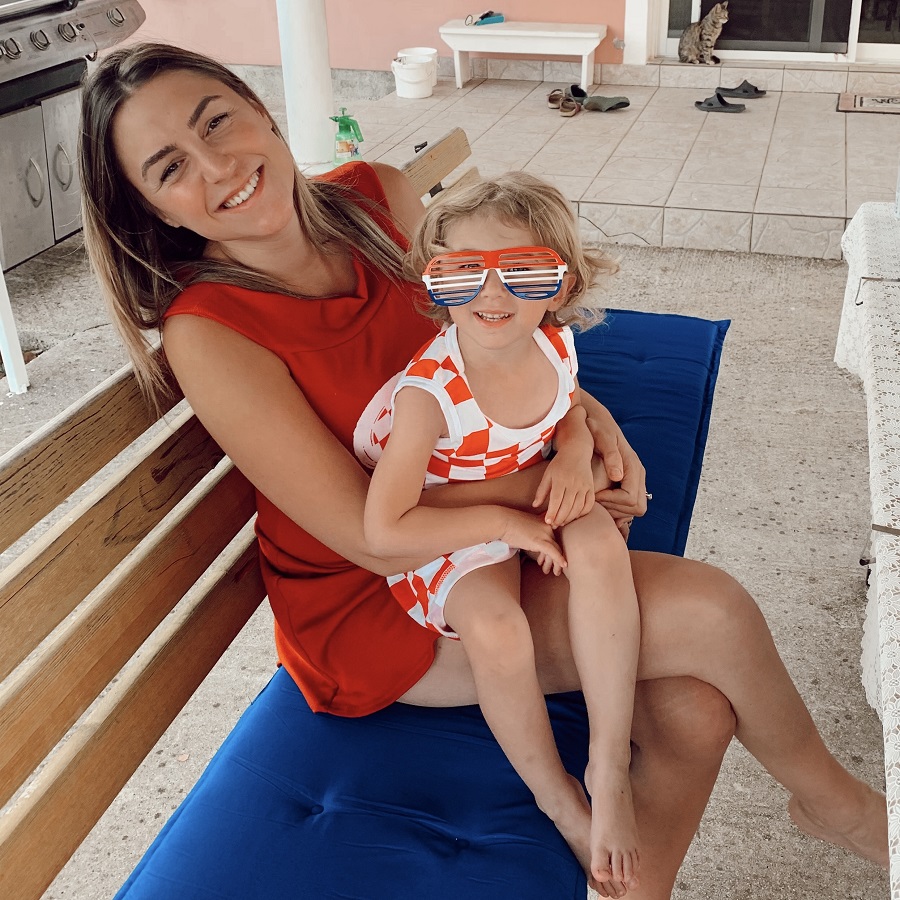
The sun is hot on our faces,
our skin becoming kissed.
The sound of birds, dogs and children,
I pinch myself to be sure I exist.
A woman is singing,
she plucks the strings of her guitar.
The old man in the hat watches her
as he smokes his cigar.
These walls have history,
many tales of victories and defeat.
My daughter dances on its ruins,
my son explores the cobblestone in his bare feet.
A castle that was fit for kings and queens
is surely fit for you and me.
Zadar as the backdrop of our story,
the cleansing from the deep blue sea.
My heart belongs to this city,
my family breathes its air.
I wouldn’t have it any other way,
God has answered my prayer.
- Katarina Bučić
****
Thanks, Katarina!
You can follow more stories in the Croatian Returnee Reflections series in our dedicated TCN section.
Would you like your returnee story - positive or negative - to be featured in this series? Contact This email address is being protected from spambots. You need JavaScript enabled to view it. Subject Returnee.
****
What's it like living in Croatia, and where can you get the best survival tips? TCN CEO Paul Bradbury and TCN Editor Lauren Simmonds have teamed up to publish Croatia, a Survival Kit for Foreigners.
Follow Paul Bradbury on LinkedIn.

Croatian Returnee Reflections: Andrian Juric, from Sydney to Zagreb
October 1, 2022 - Whisper it quietly, but more and more people are relocating to Croatia from the diaspora. In a new TCN series, we meet them to find out how they are faring and what advice they have for others thinking of making the switch. Next up is Andrian Juric, who moved from Sydney to Zagreb.
My family is from Škabrnja, a town known for its agriculture and classic Dalmatian attitude; you know the one: slow to anger, reasonable in debates, respectful of road rules, and a healthy dose of sarcasm. I was born in Sydney, Australia, and like my father before me, I left the country of my birth for a better life. I've been living in Croatia since the World Cup of 2018. I live in Zagreb, where I work for OptimoRoute, a Silicon Valley software company. If you live in a major English-speaking city and ordered something online, chances are you are indirectly using our software.
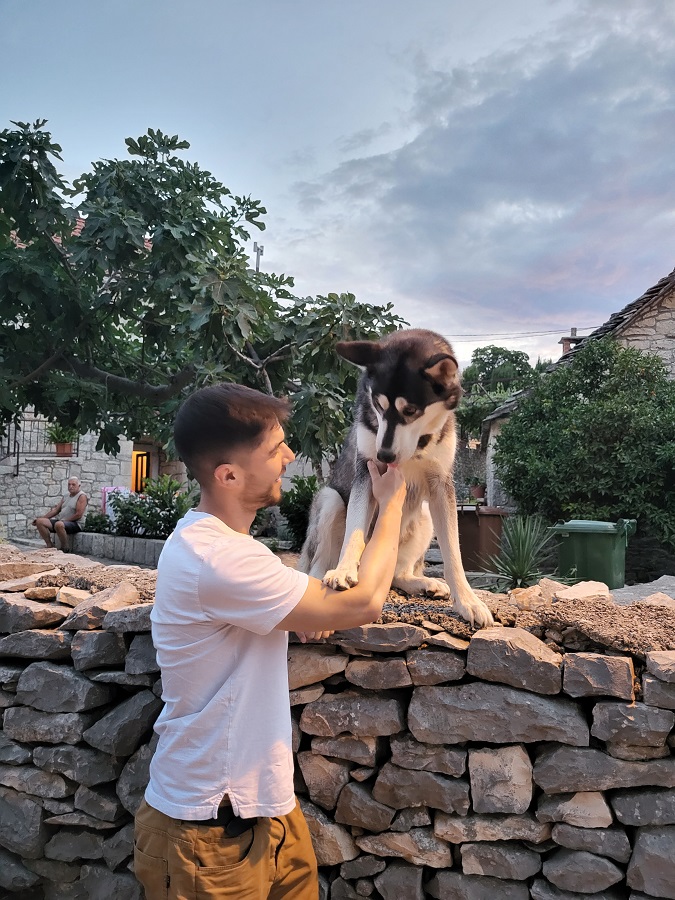
1. You made the switch to Croatia. Tell us a little about the decision process and how long it took for you to get on the plane.
Back in 2012, I visited my godparents in the town of Nin. After an amazing home-cooked meal (My godmother reads this, this will make her day), my godbrother and I enjoyed a night of partying with the locals. Eventually, we ended up listening to a live band playing acoustic versions of Dalmatian hits. His family was all there, late into the night, at a bar that overlooked the beaches of Nin, and all I could think was, "This is a Tuesday for them"
It was then that I realized that his family has something no one in Sydney will ever have. If they could have this life, why couldn't I do the same?
I then started looking for other returnees to Croatia who came from Australia. The ones with the best lives were all working remotely for Australian companies. An Australian salary with a Croatian cost of living was the dream. I spent 2 years learning relevant skills, built up a network of contacts in Sydney for remote work, and made this dream a reality.
The Russian World Cup in 2018 was the perfect opportunity to visit Croatia. I saved up a lot of vacation time and left on a reconnaissance trip. In-between matches, I looked up rental properties, interviewed with local tech companies, networking with business owners, everything that I would need to thrive. It was a crash course in living in Croatia.
Not many people have that moment where they know exactly where they need to be. I had this in 2018. I didn't want to be anywhere else, and I'd do whatever it took to stay.
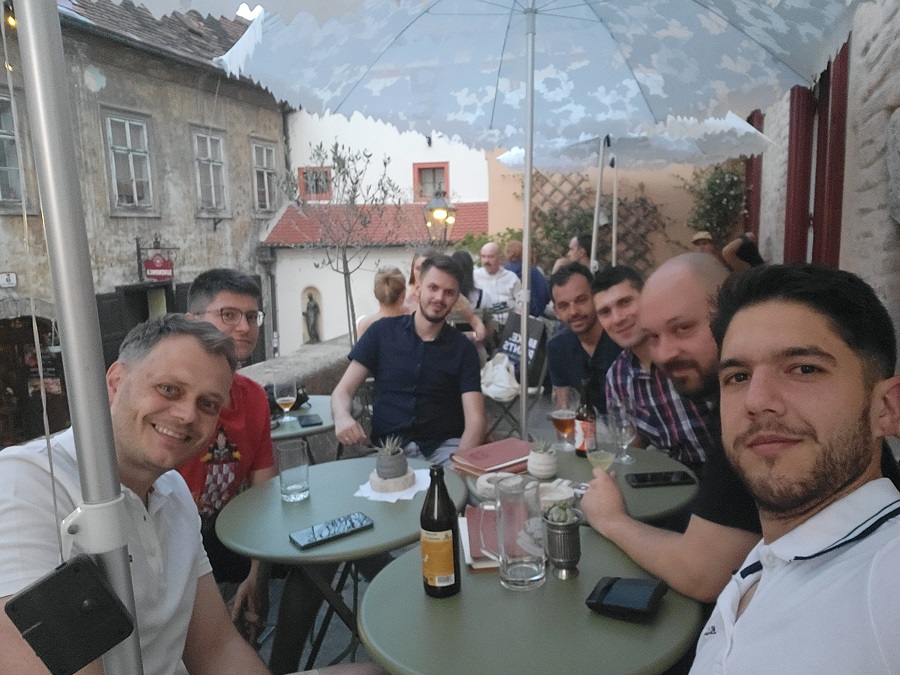
2. What did your family and community back home think of your decision at the time?
Besides my family, I didn't tell anyone I was going. My rationale was that people who had never made this choice before would only fill me with doubt. I only really opened up to people who were already living in Croatia and a few people that had come back. My family was cautiously optimistic at the time but today are very supportive now that they know that all it takes to make it is to not make too many stupid decisions, be a bit creative with how you earn a living, and a lot of hard work (like it's any different elsewhere?).
3. Where did you get your information about the realities of Croatia prior to coming?
I researched tech companies in Croatia and became optimistic. I made a bet that there would be at least one company with a need for my skill set. It took a while to get to that coffee with the right CEO, but it paid off. The reality is that it's difficult to know anything about Croatia without actually living here. If you associate yourself with the right people, ambitious and positive people, you'll make it.
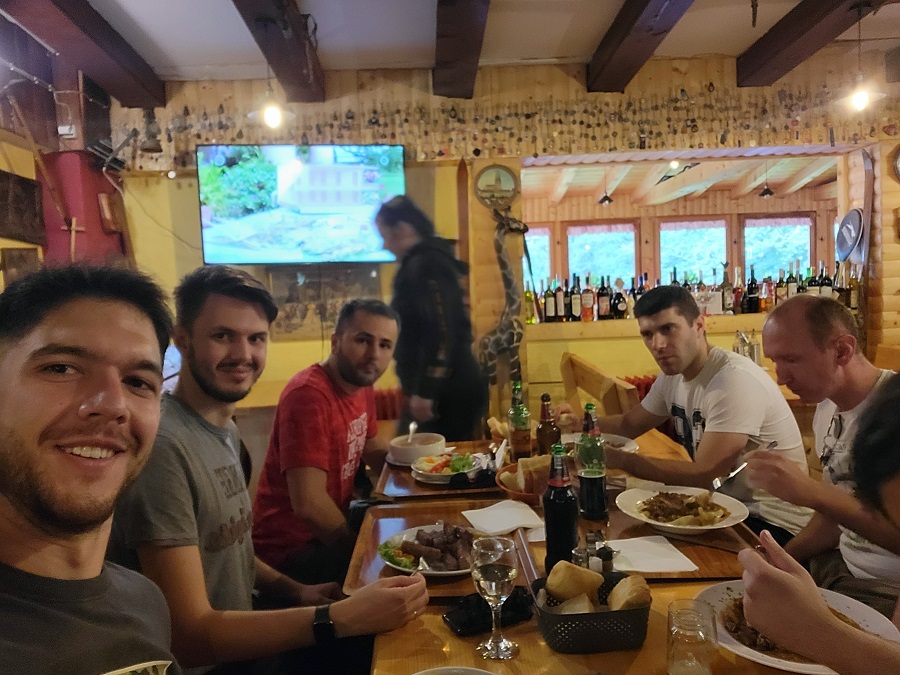
4. What were you most nervous about making the switch? What was your biggest fear, and what was the reality of what you found?
I came to Zagreb in the winter of 2018/2019 from Australia, a place whose winter is considered beach weather in 90% of the rest of the world. It was cold, my Croatian was terrible, and my bank account turned into a countdown to homelessness.
I acted on the one piece of advice trusted people had given to me in Australia: "it's who you know that counts". So what do you do when you know absolutely no one in Zagreb? You start doing what Croatians do best, go out for coffee.
Before long, my coffees took me all around the country, and it taught me a very valuable lesson: to get value, you must give value. This 18-month caffeine binge lead me to one of the best job interviews I ever had and resulted in a job with a world-class tech company.
What's the reality of coming here? With the right group of people, you can really live your dream life. After 4 years, I've discovered that if you talk to 1,000 returnees, you'll learn 1,000 different ways to "make it" in Croatia. But the people who didn't make it all tended to make the same two mistakes: stubbornness and isolation. If you're serious about returning, avoid the following:
- Don't brag about who your parents or relatives are. It never ends well.
- Don't flash cash from your savings account. It won't last long.
- Never ever talk about how you're going to "save" Croatia. Every month there's a returnee who tries to pull this stunt.
Put your head down, work, be friendly, and very quickly, you'll see support coming from everyone around you. That's the reality, be humble and help people. There are very good people here; they just need to be sure you're genuine.
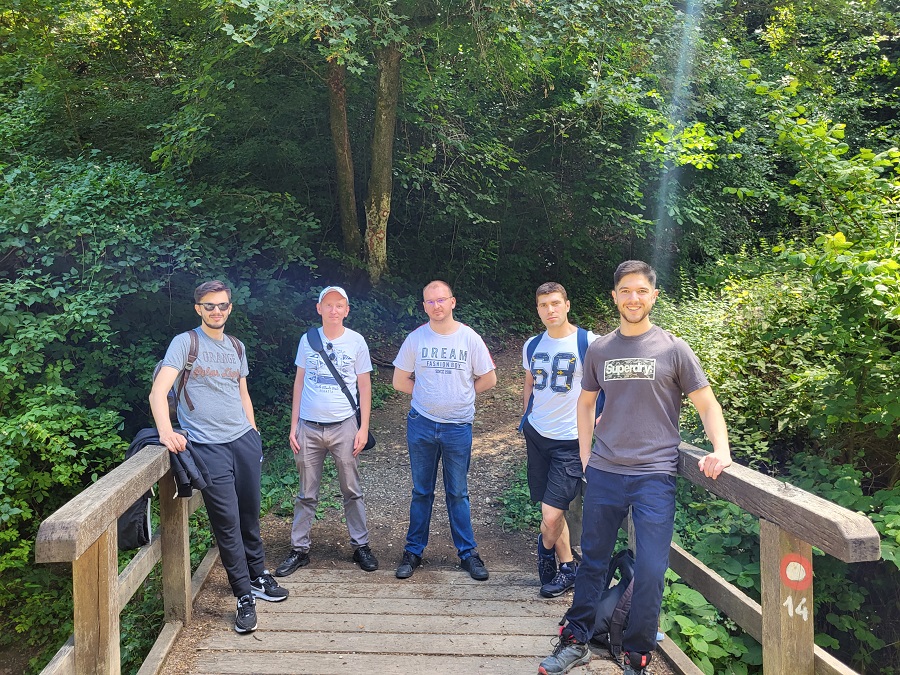
5. Think back to the time before you arrived. What were your perceptions about Croatia, and how were they different from the reality you encountered?
This is no longer pre-war Croatia; it's not 1991 Croatia, it's not even 2008 Croatia. This is 2022 Croatia, an EU member state with a passionate but informal entrepreneurial culture. Those on the outside only see the headlines or what's shown on TV. What they don't see are the networking events, the tech start-ups, and the company parties. Croatians are very quickly learning how to make high incomes, and their work ethic can be world-class. The people I'm describing are currently a minority, but they love the fact that the world underestimates them. They are constantly looking for like-minded professionals to build new connections with.
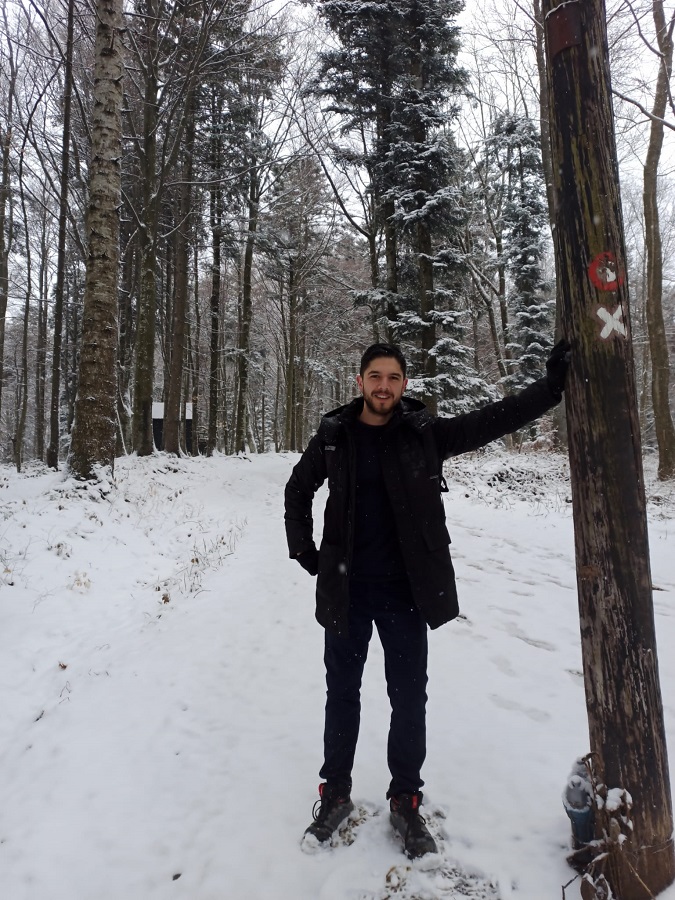
6. You are still here, so obviously, the pros outweigh the cons. Tell us about some of the things that you love about being in Croatia, as well as some of the things you don't like.
Things that make me love Croatia::
- The nightlife and work opportunities
- Hiking in the mountains, going to secluded beaches
- Other Croatians
Things that give me a headache in Croatia:
- The bureaucracy
- People who drive a BMW in Zagreb
- Other Croatians
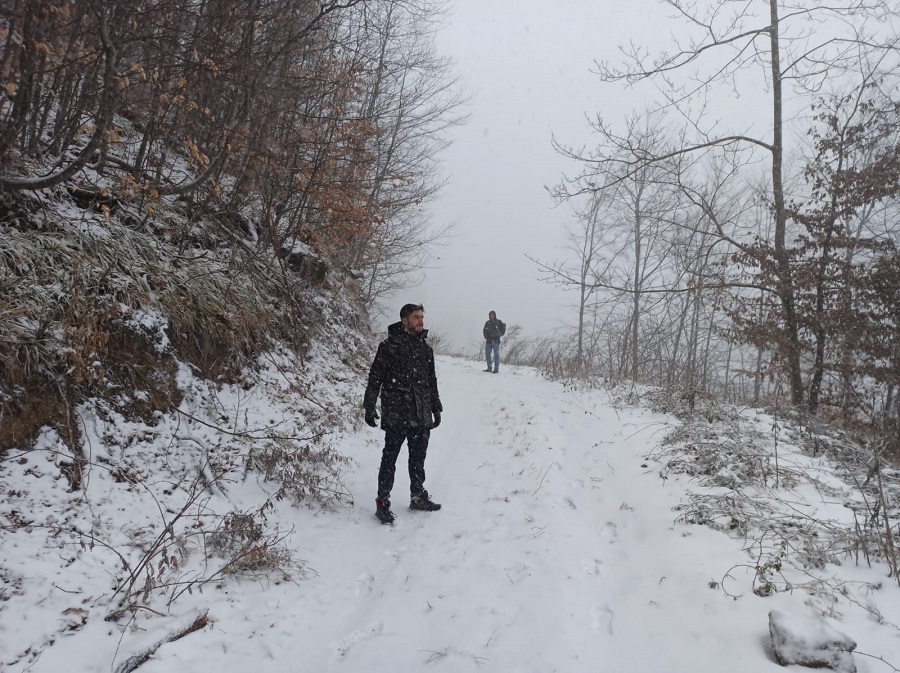
7. What advice do you have for others thinking about making a move from the diaspora?
Talk to other returnees before you make your decision. We all have an online presence, and someone will be able to connect you to someone that can advise you properly. There is no single solution to living here, find someone who came from a similar situation and ask them what they did. The rest is fairly straightforward: get your citizenship in order, be in a profession that can work remotely or be a tradesman, and be ready to rebuild your network from the ground up.
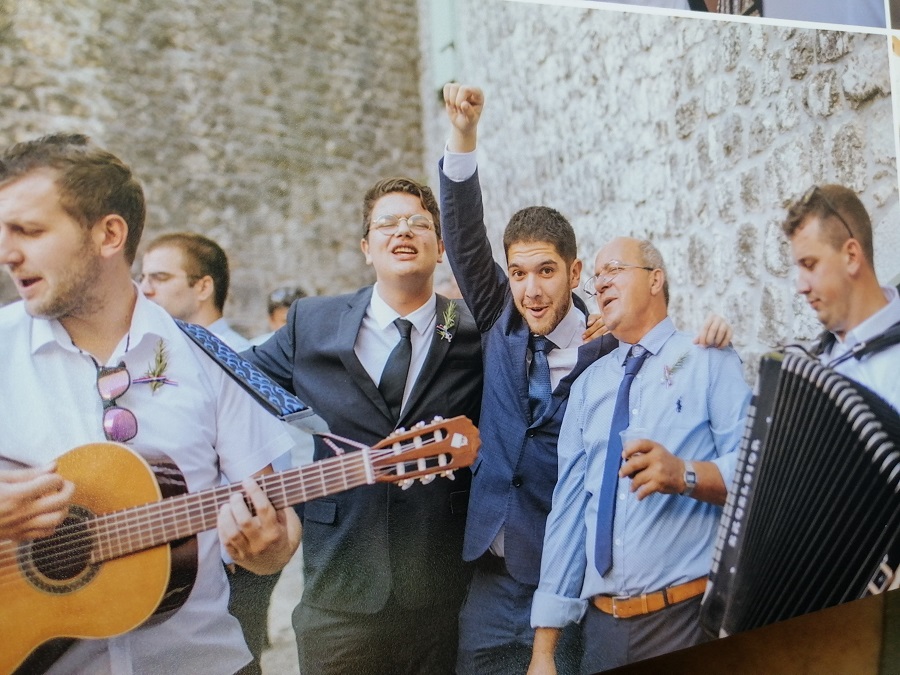
8. How do you think Croatia can better assist those who are looking to return to the Homeland?
We currently live in a sweet spot of Croatian history. Moving to Croatia is perceived to be so difficult that only the people that really want to come to do so. None of the returnees have a boring backstory. If you want to return to Croatia, now is the time you'll get the most support from other returnees. Purchasing that one-way ticket gets you at least one coffee with absolutely everyone.
But, if we wanted to make this process easier:
- Make it easier for the Croatian diaspora to obtain their citizenship or at least make it easier for them to live here for several years legally
- Make it well known what services the country has to offer. There is a lot of information freely available online that most people don't know about.
- Give Croatian companies better incentives to network with foreign companies, thus exposing more potential returnees to our economy
- Instill a sense of security in returnee families by publishing and committing to long-term city planning. Let people know where new schools, medical centers, transport links, and housing will be built
There are a million ways to make Croatia better. What's the worst that can happen in moving here? For me, it was living again in Sydney, a winning lottery ticket for most of the world. I had nothing to lose.
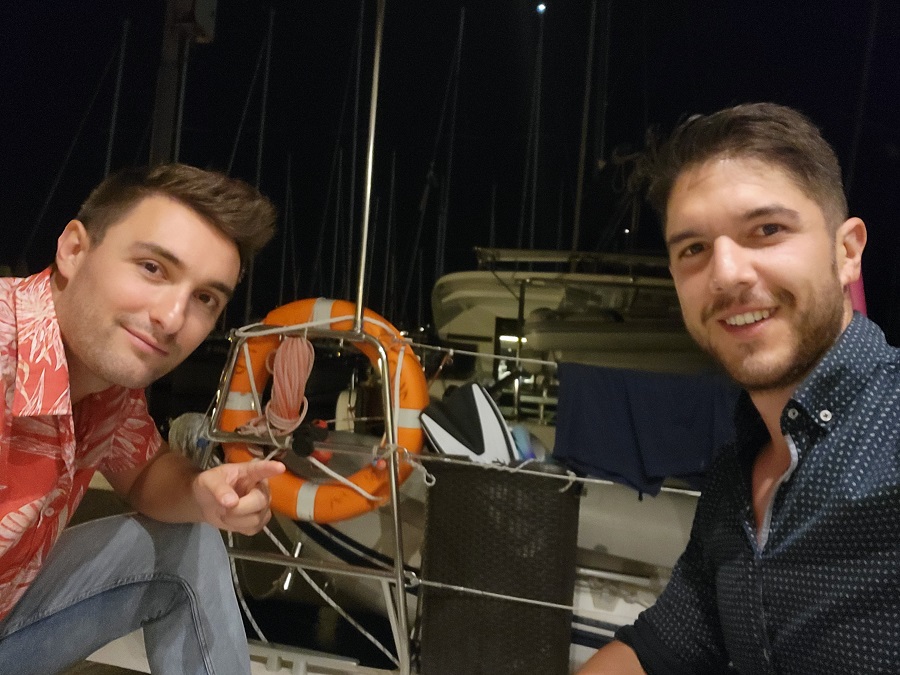
****
Thanks, Andrian!
You can follow more stories in the Croatian Returnee Reflections series in our dedicated TCN section.
Would you like your returnee story - positive or negative - to be featured in this series? Contact This email address is being protected from spambots. You need JavaScript enabled to view it. Subject Returnee.
****
What's it like living in Croatia, and where can you get the best survival tips? TCN CEO Paul Bradbury and TCN Editor Lauren Simmonds have teamed up to publish Croatia, a Survival Kit for Foreigners.
Follow Paul Bradbury on LinkedIn.

Croatian Returnee Reflections: Marko Petric, from Berlin to Zagreb
September 29, 2022 - Whisper it quietly, but more and more people are relocating to Croatia from the diaspora. In a new TCN series, we meet them to find out how they are faring and what advice they have for others thinking of making the switch. Next up is Marko Petric, who moved from Berlin to Zagreb.
I was born in 1993 in Split, Croatia. I am the oldest of three children born to our mom, a Croatian language professor, and our dad, a telecommunications engineer. My siblings and I grew up in lovely Posusje, in the West Herzegovina region of Bosnia-Herzegovina.
Thanks to a generous merit-based scholarship, in 2009, I moved away from home to finish my two last years of high school at the United World College in Mostar (UWCiM), where I lived and went to class with kids from more than 40 other countries.
Then, I got a full-ride scholarship to study at a liberal arts college in Maryland (Washington D.C. Metro Area). I was pretty involved in campus life there, having served as Class President and Model United Nations president, which in turn led to an opportunity to speak at the United Nations General Assembly Hall in New York City at some point.
After four transformative years, I graduated with a degree in Political Science and French and started working in PR and marketing as part of the largest network of nonprofits in the U.S., fighting for education, health care, and financial stability. I lived in the States for almost seven years. In April 2017, I packed my whole life in a suitcase and left. Admittedly, I was heartbroken about it, but the uprooting taught me an important lesson — one of letting go.
After that, determined never to return to my hometown or Croatia, I ended up in Bergen. In case you’re not familiar, Bergen is Norway’s second-largest city, nestled between seven mountains on the west coast of this stunningly beautiful country. It’s also one of the rainiest cities in the world, and as you can imagine, this Mediterranean boy was not having it. I left after about eight months.
On my way out, I stopped by Berlin, Germany, for what was supposed to be a two-day trip. As I was there, I realized Berlin had a thriving startup scene. I had already been looking to break into the software industry, so naturally, I found myself wondering: "Why not move here?" Everything happened kind of quickly — almost accidentally, even — but I did end up living there for two years. I loved every minute of it.
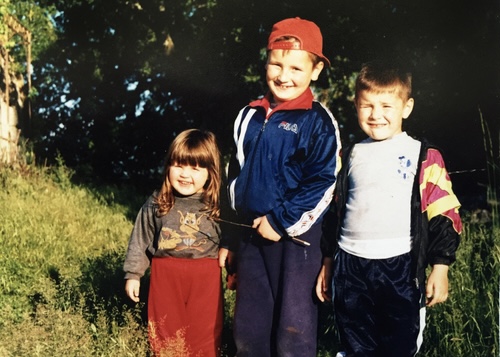
1. You made the switch to Croatia. Tell us a little about the decision process and how long it took for you to get on the plane.
Yes, eventually, I did the exact thing I swore I'd never do: I moved to Zagreb.
It's funny how life can take you on unexpected journeys. Although I was drawn to return closer to home, there was a part of me that felt reluctant. It felt like admitting defeat in some game I was playing with myself — subconsciously, at least — and I initially refused to consider it as a sensible option.
But after months of consideration, I realized that moving to Zagreb could be just the thing I needed to grow both personally and professionally. Being closer to the beautiful Adriatic and my parents in Herzegovina was a major advantage. And as a digital marketing professional, I knew I could continue my work as long as there was a stable internet connection, which there is.
It was a difficult decision, but sometimes we have to take a leap of faith to find our true path. This felt like one of those moments.

2. What did your family and community back home think of your decision at the time?
I got a mix of reactions. All my friends were a bit perplexed, but they said: “Happy if you’re happy.” My parents always supported me in all my decisions, and they were elated that I was moving closer to home. That was for sure. However, I could tell they were having some reservations because they knew I had worked my whole life to build a better life elsewhere. Of all three kids, they always considered me the least likely to move to Croatia. So the irony was evident to us all: Both of my siblings were already living abroad when I announced I would be moving to Zagreb. The lesson I learned from this move was to never say never.
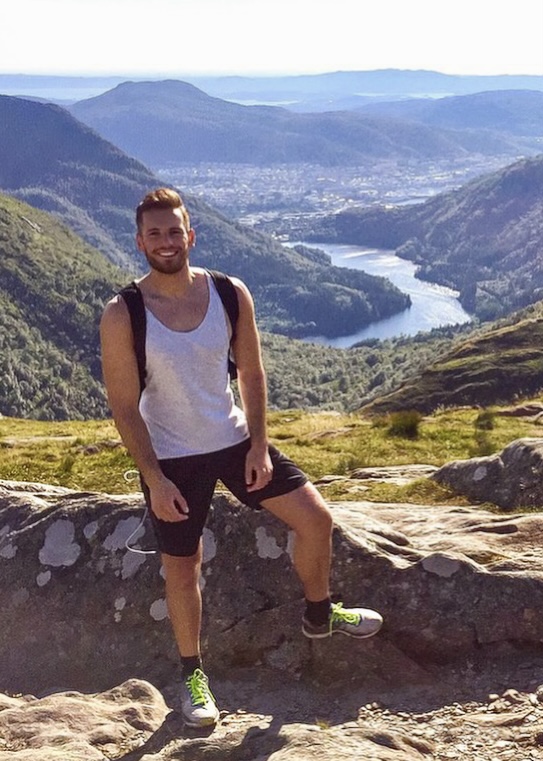
3. Where did you get your information about the realities of Croatia prior to coming?
At that point, I stopped keeping track of local news in Croatia. I knew HDZ was in power, Andrej Plenkovic was the serving PM, and there were two weekly flights from Zagreb to Berlin (in case I wanted to run back). But beyond that, I didn’t know much because I had never lived in Croatia for the long haul before.
So in many ways, it felt like moving to a foreign country. After almost a decade spent across the U.S., Norway, and Germany during my formative years, moving back to the Balkans required me to reacclimate to the local ways of being.
I was lucky to know some people here already, so I relied heavily on friends to give me the information I needed ahead and after our move. Of course, I also researched information online across many sources, including TCN.
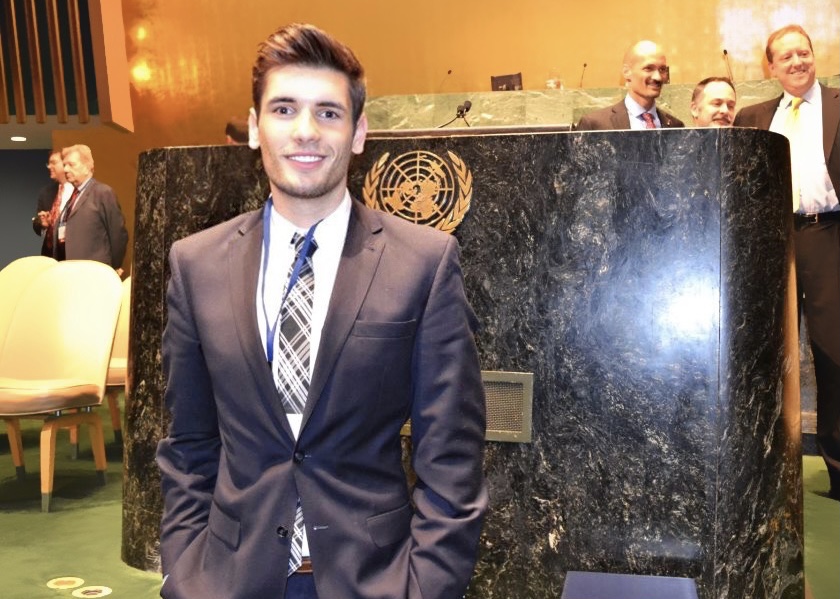
4. What were you most nervous about making the switch? What was your biggest fear, and what was the reality of what you found?
Job opportunities and economic circumstances at large were my two main concerns. Considering the lower standard of living in Croatia relative to EU members in the west and the north, I knew my best shot was freelancing. As 2020 rolled around, amid the pandemic and a global shift to a new, digital reality, I finally decided to make my side gig my full-time gig. And that is the story of how MP Creative Services, my full-service digital marketing business, was (officially) born.
Currently, MP Creative Services is on the back burner, as I am focusing on a role I took at Five, an Endava company. As a growth marketing specialist there, I work at the intersection of marketing, behavioral economics, data analysis, and product design to drive mobile app growth for some cool U.S. brands.
5. Think back to the time before you arrived. What were your perceptions about Croatia, and how were they different from the reality you encountered?
"Hercegovac u Zagrebu" was not a cliche I planned on embodying at any point in my life, but I became precisely that when I moved here. The metamorphosis implied developing specific coping mechanisms for when I’m just going about my business and someone starts talking crap about Hercegovci. The funny thing is, when I was younger, I tried to distance myself from that part of my identity as much as possible (probably because of its negative connotation). But as I grew older, I embraced it, and now I find myself defending it against libelous Purgeri — generally, in a playful, joking context.
As an openly gay man, my other big concern was that I did not want to go back into the closet and start denying that part of my identity again — one that I worked so hard on embracing in the first place.
Croatia is a deeply conservative society, with traditional Catholic values at the core of the nation's DNA. I was worried that I would struggle with that, but I decided never to reduce myself or pretend to be someone else for the comfort of others. I needed to be brave and true to myself at all times. I understood that, with every interaction, I had the opportunity to dispel misconceptions and build dialogue — hopefully, seeing a change of heart in someone every once in a while. This matters to me because it's not just about me; it's bigger than that.
To my surprise, I’ve experienced more kindness during my time here than I ever expected from the people of Zagreb and Croatia. It was to the point where I felt like the closed-minded one because of how stubborn I was in the generalizations I made about an entire population. Of course, this does not mean other gay boys/men and girls/women across the country are not suffering injustice and inequality daily. But based on my experiences with people whose paths crossed mine, I am more hopeful about the kind of society we can build for future generations than I have ever been in the past.
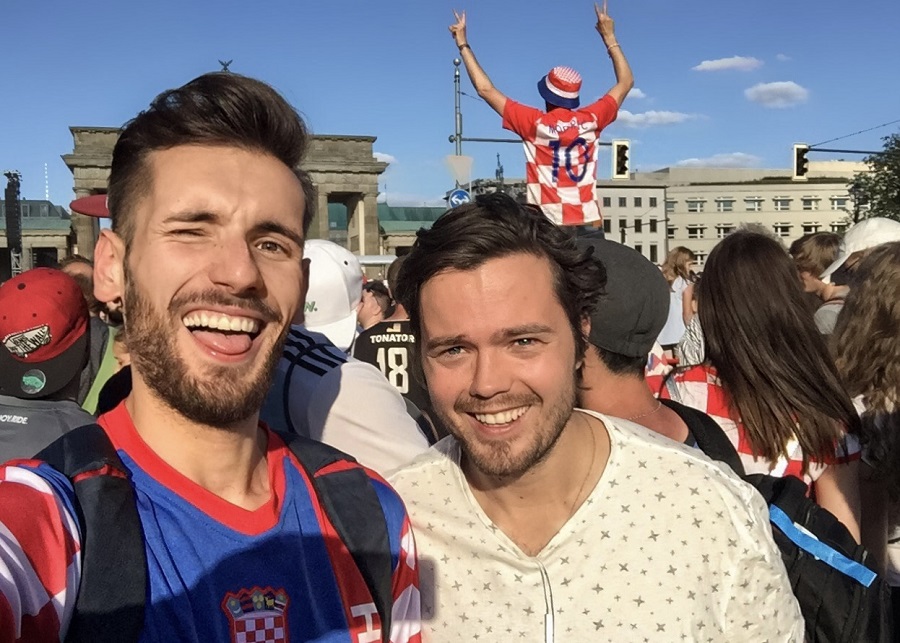
6. You are still here, so obviously, the pros outweigh the cons. Tell us about some of the things that you love about being in Croatia, as well as some of the things you don't like.
Well, I have been here for almost three years now. And I would be lying if I said I have fallen in love with living in Zagreb. I am still working on it. On the one hand, I have fallen out of love with Croatia because — now that I live here — I have stopped idealizing it. On the other hand, I have also fallen in love with it because of the people who live here, the passion and dedication I see them put into the things they do, and the great stuff they bring into the world when they put their minds to it.
Sure, many aspects of living in Croatia suck. There’s no sugarcoating it. Food, rent, and utilities are too damn expensive, yet salaries remain below the EU standard for most. Things are about to get even worse with inflation raging and the winter coming. Working families and seniors are affected the most. Speaking of seniors, too many retired people have no choice but to supplement their income by digging through the trash, looking for discarded bottles to trade in for a couple of kunas. Such is the fate of the average worker retiring in Croatia today.
We’re still using Tito's Communist regime and the Homeland War that ensued as a scapegoat for everything wrong in the country today — almost thirty years after the war ended. In the meantime, corruption remains widespread, killing the system from the inside, like Stage 4 cancer. In terms of rights, many have none. Women's rights are still an issue, as are gay rights, ethnic minority rights, and the rights of immigrants arriving on the border. The list goes on… But keeping things in perspective, no country is perfect. In my book, it comes down to finding someplace worth fighting for, someplace worth calling home. I suppose I found that ‘something’ here.
In 2003, Berlin Mayor Klaus Wowereit famously called his city “poor but sexy”. Berlin is no longer poor, so I will take the liberty of conferring this title upon Zagreb. Poor but sexy is a great way of describing it because its charm is indeed in the rundown Austro-Hungarian facades, colorful street art, trendy food spots, and hipsters hanging in front of the National Theater.
Don’t forget about the balmy summers, either! The city clears out, and you can enjoy parks, forests, and Jarun Lake all to yourself. And as the summer slowly fades away, all the artists, creators, innovators, and other eccentrics who call Zagreb home return. The city comes alive again, almost overnight. Before you know it, it’s time for Advent — Christmas lights, ice skating, mulled wine, and friends.
Okay, fine! I do like Zagreb.
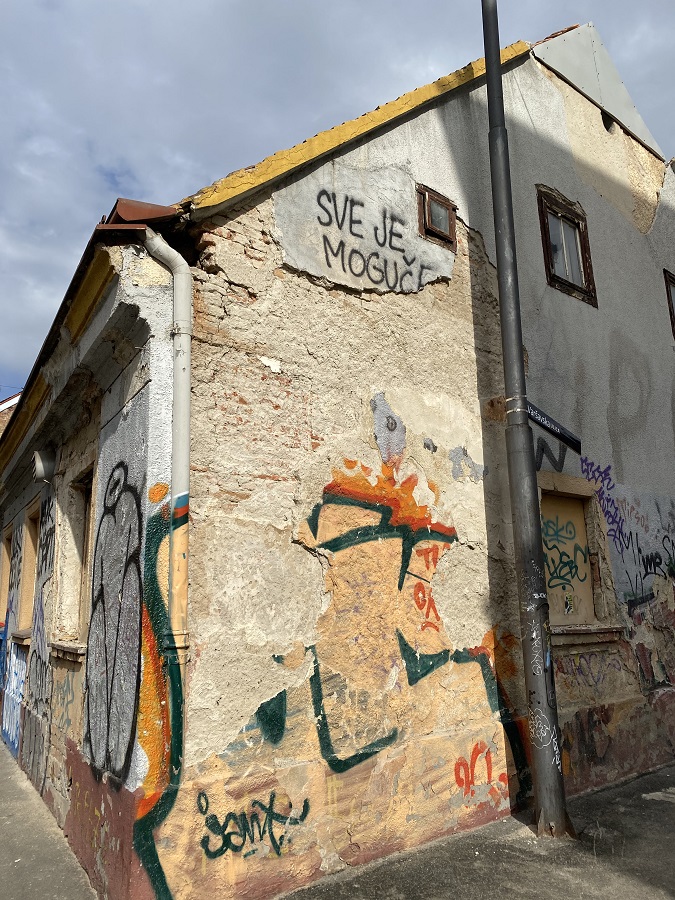
7. What advice do you have for others thinking about making a move from the diaspora?
Just do it!
That would be my advice to anyone considering moving to (almost) any country. I think embracing the unknown, leaping into uncharted territory, and taking yourself out of your comfort zone is the only way to grow. And trust me when I say: Croatia will give you a run for your money.
Worst-case scenario: Even if you end up hating it, you always have the option of moving back home. The country you, your parents, or your ancestors went to in search of a better life. Perhaps they found it. Perhaps not. In any case, we all get to be the authors of our own stories. The world is your oyster. (And serendipitously, Croatia is one of the best places on the planet to sample this decadent treat. If this is not a sign…)
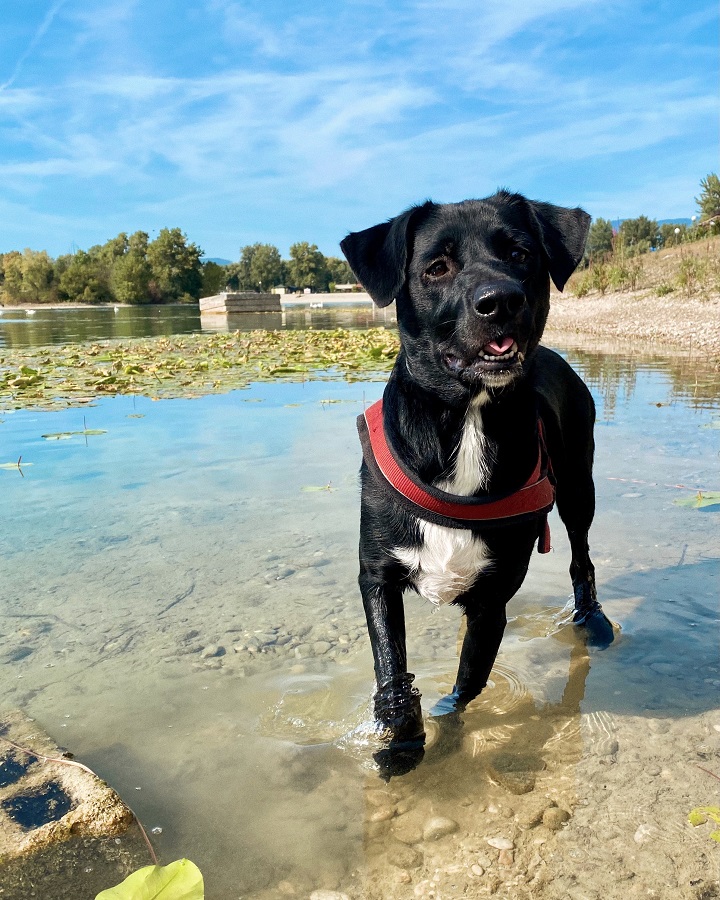
8. How do you think Croatia can better assist those who are looking to return to the Homeland?
Oh, man, where do I even start…
Generally, I think our government should actively be looking into ways to make it simpler for people to come here and contribute to our society, whether it’s by bringing know-how or investments, opening a business, starting (or moving) a family here, or any other number of ways in which they could enrich the fabric of our society.
Tax cuts for the first year might be a reasonable idea to explore. Programs assisting families moving with kids with needs such as daycare, school, medical care, and so on. And in the post-pandemic world, offering more online resources across a spectrum of public services is paramount. This opens up the door to opportunities to work closely with the private sector, especially tech companies that have the know-how to bring forward-looking, ambitious ideas to life.
Andrej Plenkovic’s government, as profoundly flawed as it may be, seems to understand this on some level. The digital nomad visa project is a great example: While ‘forward-looking’ is not a word I’d use to describe much else of what goes on in Croatia’s politics these days, this truly is the kind of rare political project that can have a deep and lasting impact on the country’s growth trajectory. Though the effort was spearheaded by the Dutch-born entrepreneur Jan de Jong (arguably a greater patriot than most native Croats), the government still handled the legal and logistical prerequisites with unprecedented expediency. I bet no other political project was executed that fast in the country’s modern history.
Then, there’s also the question of the booming software industry, expected to surpass the behemoth that is tourism in a few years in terms of value-add GDP. Yet government policies had very little to do with that success. Croatian software companies are achieving truly remarkable results on the global scale with no outside help. As a country, we should be making it easier for them to attract talent and investments. By designating the software industry as a strategic, thereby empowering promising startups, we empower the Croatian economy, making it more resilient to pandemics, wars, inflations, and other capitalist maladies.
California is fine and well, but it’s possible to build a multi-million-dollar company in Croatia too. It’s been done several times over the past 10 years, and there’s always room for more innovation. Also, we’re lucky to have many in the Croatian diaspora communities around the world in our corner. Many passionate people out there have the expertise, the motivation, and the cash to help build Croatia’s “silicone dream”.
Little geniuses are sitting in schools across the country right now. With the right support, in the future, these kids might find solutions to some of the world’s most pressing issues — maybe even save the world. This is why I hope we divert more resources to education, bringing our schools and universities up to par with those in Finland and other countries pioneering new, innovative education models. We have to make sure we start introducing kids to technology as early as possible, giving them the tools they need to learn new skills. That’s how we attract more families looking for a safe place to raise their little geniuses.
****
Thanks, Marko!
You can follow more stories in the Croatian Returnee Reflections series in our dedicated TCN section.
Would you like your returnee story - positive or negative - to be featured in this series? Contact This email address is being protected from spambots. You need JavaScript enabled to view it. Subject Returnee.
****
What is it like to live in Croatia? An expat for 20 years, you can follow my series, 20 Ways Croatia Changed Me in 20 Years, starting at the beginning - Business and Dalmatia.
Follow Paul Bradbury on LinkedIn.
Croatia, a Survival Kit for Foreigners will be out by Christmas. If you would like to reserve a copy, email This email address is being protected from spambots. You need JavaScript enabled to view it. Subject 20 Years Book
Project “KRAVATA” is underway as a symbol of Croatian culture
CroDiaspora and the American Croatian Congress designed and launched the “Kravata” (Necktie) project to present the necktie as a symbol of Croatian culture, but also to highlight and promote the influence of Croatian emigrants through the presentation of their contribution to emigrant communities, Croatia and the world. The collection of ties, scarves, and CVs with the signatures of those who wore them is underway. All exhibits will be presented at the project's traveling exhibitions at universities around the world and at the UN and EU institutions.
“Kravata” team members are Nada Pritišanac Matulich (Project Manager and Coordinator), Ana Katalinić (Key Account Manager), Branka Bezic Filipovic (Key Account Manager, South America), and Mate Pavković (Public Relations Manager).

The first exhibit will be at Rochester Institute of Technology Croatia Dubrovnik Campus from June 8 – 11, 2023, which will be a symbolic exhibit as it will namely showcase Dubrovnik’s diplomatic tradition. The exhibit will then travel to Aspira University College Split on June 15, 2023, before heading to the Zagreb School of Economics and Management on July 7, 2023, in conjunction with the 7th Annual ACAP Conference. From Zagreb, the exhibit will travel to other Universities and institutions around the world.
At the end of the project, organizers intend to create a necktie museum in Zagreb where tourists, as well as Croats and their children, will have the opportunity to learn about influential and successful Croats from the Croatian diaspora who have contributed to creating a positive image of Croatia and the Croatian people abroad. If you would like to donate or contribute to project “Kravata”, reach out to organizers at This email address is being protected from spambots. You need JavaScript enabled to view it..
Croatian Returnee Reflections: Nadia Milevcic, from Buenos Aires to Rijeka
September 24, 2022 - Whisper it quietly, but more and more people are relocating to Croatia from the diaspora. In a new TCN series, we meet them to find out how they are faring and what advice they have for others thinking of making the switch. Next up is Nadia Milevcic, who moved from Buenos Aires to Rijeka.
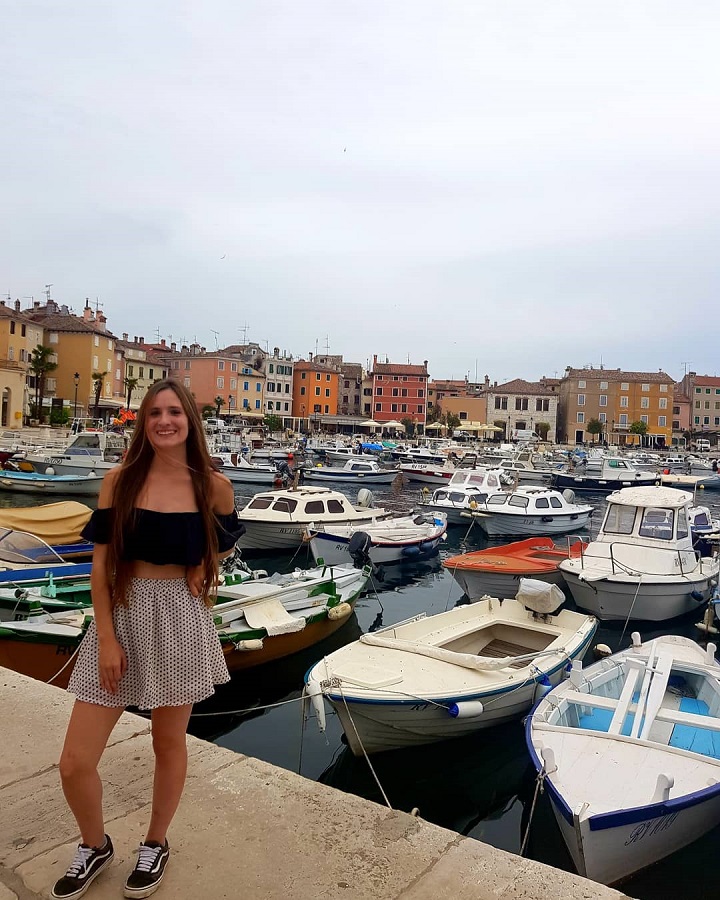
My name is Nadia Milevčić, I was born in Buenos Aires, Argentina, and I am 27 years old. My relationship with Croatia was always very strong because four of my great-grandparents were Croatian and went to Argentina in the 1920s. They did not meet in Croatia but in Argentina, where they made a family. My dad grew up among Croatians, and that tradition came down to my family. Since I was very little, I was aware of my Croatian roots, and that is why I always wanted to come here. In Argentina, I studied literature, and I worked as a high school teacher, but when I won the Croaticum scholarship, I left my job behind and decided to travel to Rijeka. I loved my career and my life in Argentina, but I also felt that something was missing. I wanted to travel and see the world, connect with another culture and live in a place totally different than mine. At first, I was only going to stay for four months to study Croatian, but the outbreak of covid made me change my plans because I couldn't go back to Argentina. I finally spent almost two years in Croatia without going back to my country. At the beginning of this year, I spent three months in Argentina, but I realized that Croatia changed me and that I cannot stay only in one country. I love Argentina, and I will always be from Latin America, but these two years in Croatia marked my heart, and a big piece belongs to it. This country allowed me to feel free, cross limits that I had never imagined, and connect with people from all over the world. I grew up in every way and learned so much that I can't go back. Half of my life is in Argentina, but the other half is in Croatia, and for that reason, I travel every year from one continent to another. I still don't know where I'm going to build my life, but I know very well that I don't want to give up on either of them.
1. You made the switch to Croatia. Tell us a little about the decision process and how long it took for you to get on the plane.
In Buenos Aires, I decided to take classes in Croatian language and culture with my dad and my brother. This was my first meeting with a Croatian person who not only taught us about the language and culture but also told us about the history of his country with a lot of love. It also brought me closer to other descendants of Croatians who also wanted to strengthen their roots and get closer to the culture. In parallel with this process, I began to look for information to obtain citizenship, and for this reason, I went to the embassy. There they told me about the Croaticum, a program for friends and descendants of the Croatian people. At that moment, the possibility of traveling and living for a while in Croatia began to take shape in my head. I was finishing my degree in Buenos Aires, and I thought it was a good time to try it. I applied in May 2018, and they did not give me the scholarship. At the end of the year, my Croatian cousins (whom I did not know) contacted me through Facebook. We quickly established a good connection, and this was a sign to me that I needed to try again. In 2019 I sent my application to study in Rijeka again, and this time they gave it to me. I remember that when I won the scholarship, my heart was overflowing with happiness, but I also had a hard time believing that I was actually going to travel to Croatia. Living in Latin America makes everything complicated from a geographical and economic point of view, and I would be lying if I said that it was easy to get here. If I succeeded, it was also because I received a lot of support and help from my friends and family, who knew that my biggest wish was to come to Croatia.
2. What did your family and community back home think of your decision at the time?
At that time, I had finished my studies in Argentina, and everyone knew that nothing could tie me to the country. From the Croatian lessons, the first unsuccessful scholarship application, and all my visits to the embassy, it was a project that had been in my head for two years. Everyone was happy for me because they knew of the effort and time invested in this idea. Especially, I think it was very important for my dad because I was the first person in our family to visit Croatia and meet our cousins. It was a bridge that we had yet to establish, but the fact that I was going to travel marked a beginning.
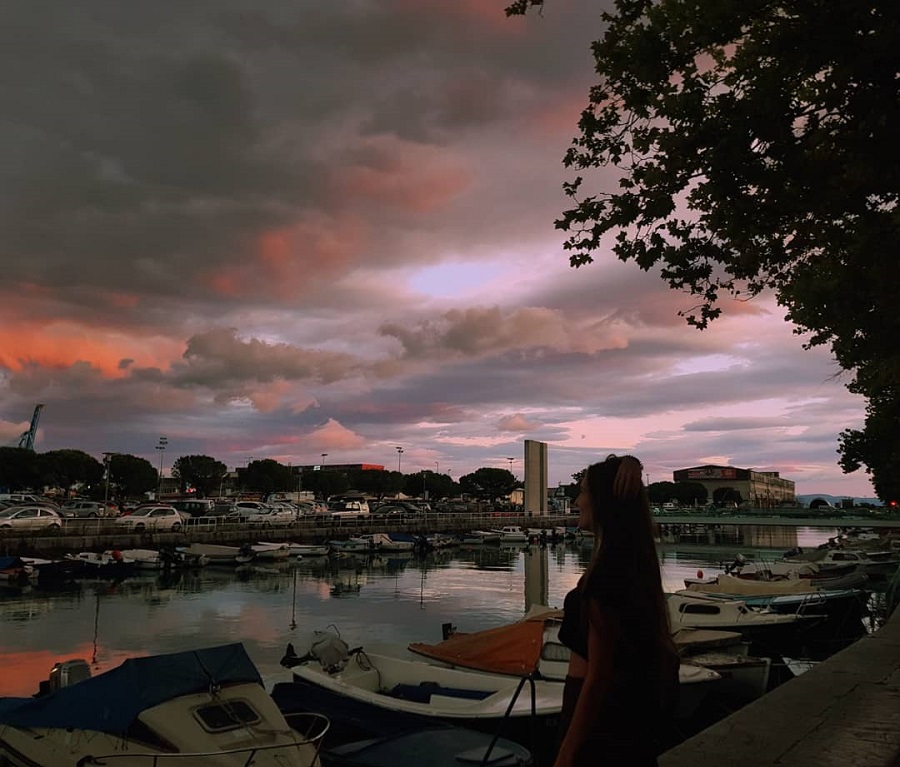
3. Where did you get your information about the realities of Croatia prior to coming?
My Croatian cousins and teacher gave me a good overview of the situation in the country. My grandmother had also traveled to Croatia in the year 2000, and she told us a lot about the country and our family, but I think that no one can prepare you and tell you effectively what you are going to find on the way. Nobody could have told me that a pandemic was coming and that it was going to complicate the process of obtaining citizenship. Or that it would also be difficult to get a job or have to take a semester online because the faculty was closed. No one could have told me that I was going to separate from my new friends so quickly due to quarantine. My first month in Croatia was very hard, and this was completely unexpected. I had to say goodbye to many people and places when I was just starting to get into a routine. I knew that my life in a new place was going to be a challenge, but I never imagined that it would be so hard.
4. What were you most nervous about making the switch? What was your biggest fear, and what was the reality of what you found?
I was scared to find myself alone on a continent and in a country, I didn't know. All this was like starting from zero for me, even though I knew I had a family in Rijeka who could help me and give me support. About the language, the culture, the people, and everything that could happen, I knew from the moment I applied for the scholarship that leaving Argentina meant facing the unknown. When I arrived, I was surprised by how warm my Croatian family was even though we had never seen each other. They picked me up at Zagreb airport and included me in their life as if we had known each other all our lives. This was very important to me, and to this day, I say that I was very lucky.
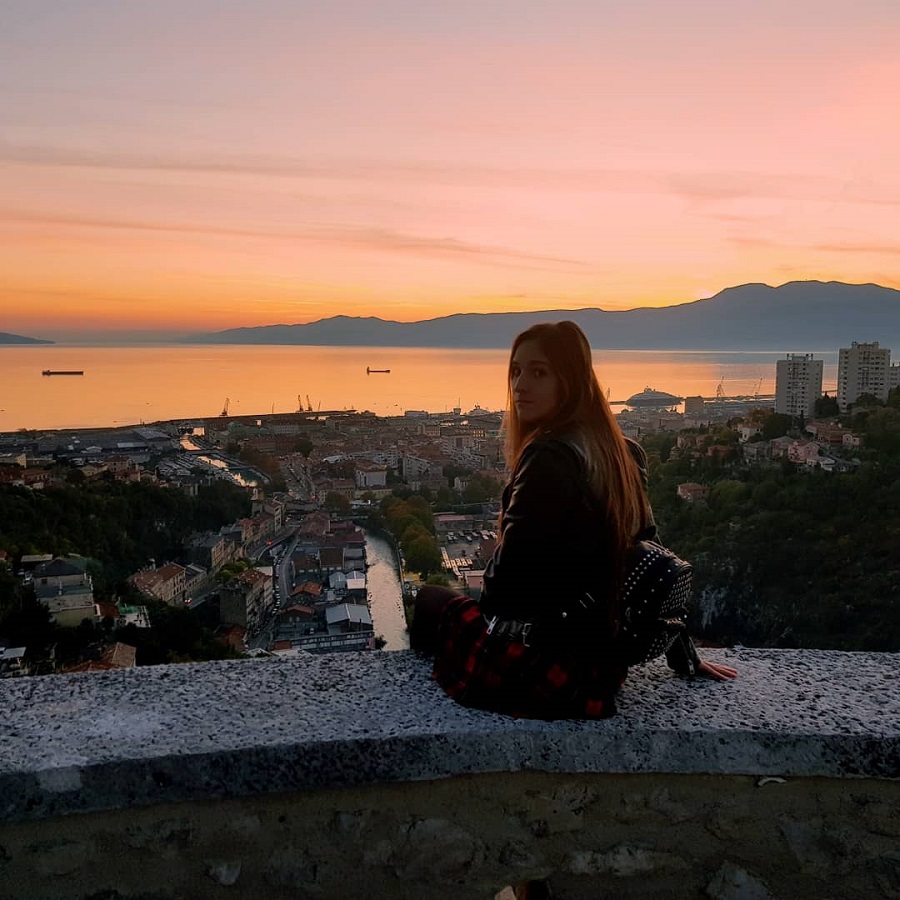
5. Think back to the time before you arrived. What were your perceptions about Croatia, and how were they different from the reality you encountered?
I thought maybe Croatians would not be so friendly to descendants because we weren't born in Croatia. However, I noticed that they were happy every time I explained that my great-grandparents were Croatian and that I was studying the language. Even if my Croatian was not good, they were always willing to help me and teach me. I also noticed that they themselves considered me a Croatian many times when I told them about my family history and the reason for my trip. I also believed that it would be difficult to obtain citizenship and that the police were not going to help me with this process. However, I noticed that they had a lot of consideration when processing the residence and citizenship. The importance given to blood is incredible, and that is why I saw that the workers also had patience and consideration with me. Processing citizenship was difficult in 2020 due to covid. It was difficult to obtain the papers from Argentina and present them in Croatia because the Foreign Ministry did not work in my country. Many papers expired, and my citizenship appointment was delayed. However, they understood, and I finally got citizenship. I honestly had high hopes for the scholarship, but I never believed that they would give me the same status as a Croatian student. On campus, I lived with Croatians, and they also gave me the opportunity to eat in the dining room for very little money. I used the same facilities and paid the same money as my colleagues. The campus is new, and it was a very beautiful experience to live in it for a year. In other words, this program not only allowed me to learn the language but also gave me the opportunity to pay little money for food and accommodation. I think this shows how important the concept of blood is and that the grandchildren of Croats return to the country. I believe that at a social level, descendants are given a very valuable place, and they do not treat us as foreigners.
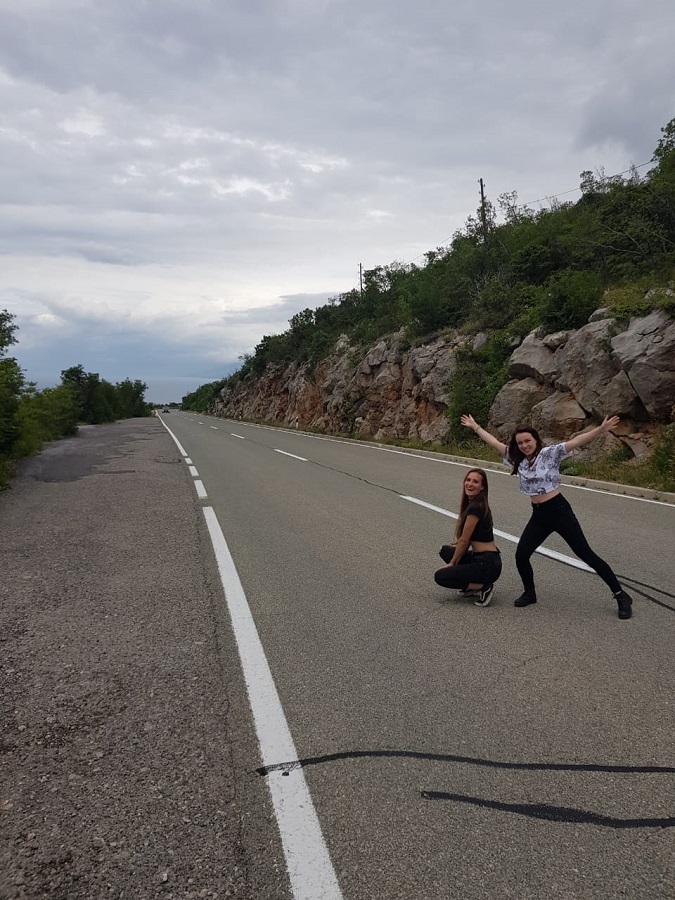
6. You are still here, so obviously, the pros outweigh the cons. Tell us about some of the things that you love about being in Croatia, as well as some of the things you don't like.
Croatia is not only a very beautiful country, but it is also very safe, and there are more job opportunities than in Argentina. It also has good connections with other countries, and many cities are always full of tourists. In Rijeka, there are many international students, and there is a cultural exchange that is very useful and interesting. I love the fact that Croatia brought me closer not only to the locals but also to people from all over Europe, and this opened my mind a lot. It also has a lot of things to do and places to explore; you can always go to a new island, climb a different mountain or visit a beach you have never seen. The country is also very calm; you don't have to deal with an excessive amount of people and traffic like in a big city. In Buenos Aires, I needed maybe three hours to make a trip that should last one. In this country there is no traffic, you can walk quietly down the street or drive without too many problems. I think there are a few things that I don't like. Mainly I think everyone smokes too much, and I can't get used to them doing it indoors. Maybe the rest of the things I don't like are explained by cultural differences, like music or food. I know that this would happen in any country, and they don't seem like a big reason to leave Croatia.
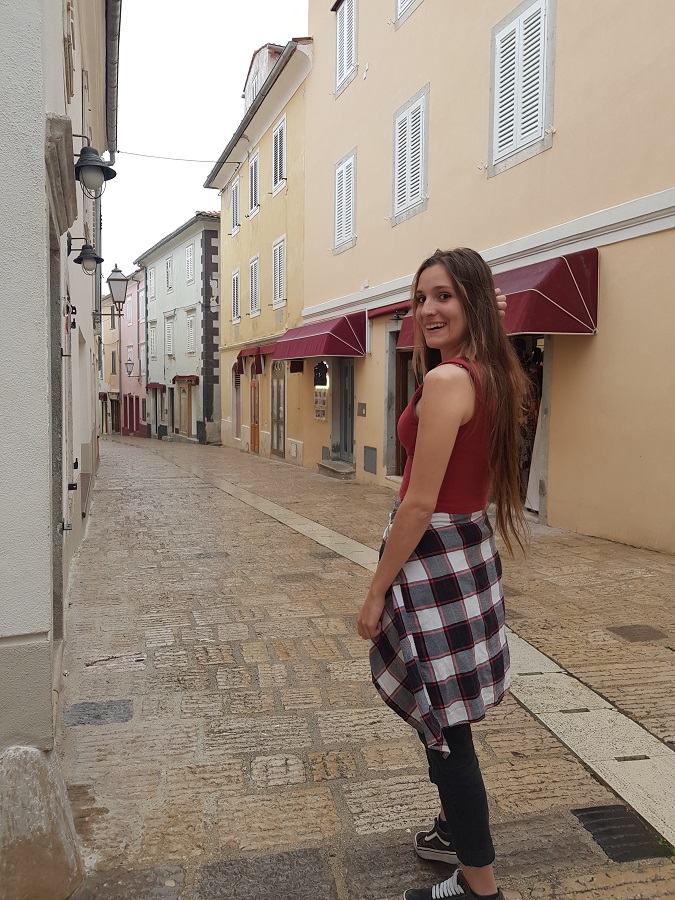
7. What advice do you have for others thinking about making a move from the diaspora?
I would tell them that if they have the desire, they should do it without thinking too much about it. It is normal to be afraid of the unknown and the unexpected, but in the end, they will always be grateful for having put it aside and come. There will be difficulties, but everything can be resolved along the way. I was scared, too, and yes, there were painful situations, but in the end, it was all worth it, and I would do it again from the beginning. Even if I had to relearn the language and start from cero without any friends, I would repeat it. It is not only for knowing the country of our grandparents and living in a beautiful place, but it also implies personal growth that no one can take away from you. I would also advise them to apply for the scholarship and explore Croatia. Whether if they want to live here or just travel, I think it's a first approach to the country and an experience worth having. In this way, they can learn the language and also see what life is like here. I would also tell them not to worry about the language or about coming without citizenship, as the people are kind and patient and will help them as much as they can. If you have Croatian relatives, look for them! For them, it is very important to know what happened to the grandchildren of their relatives, and they are going to receive them with tears in their eyes.
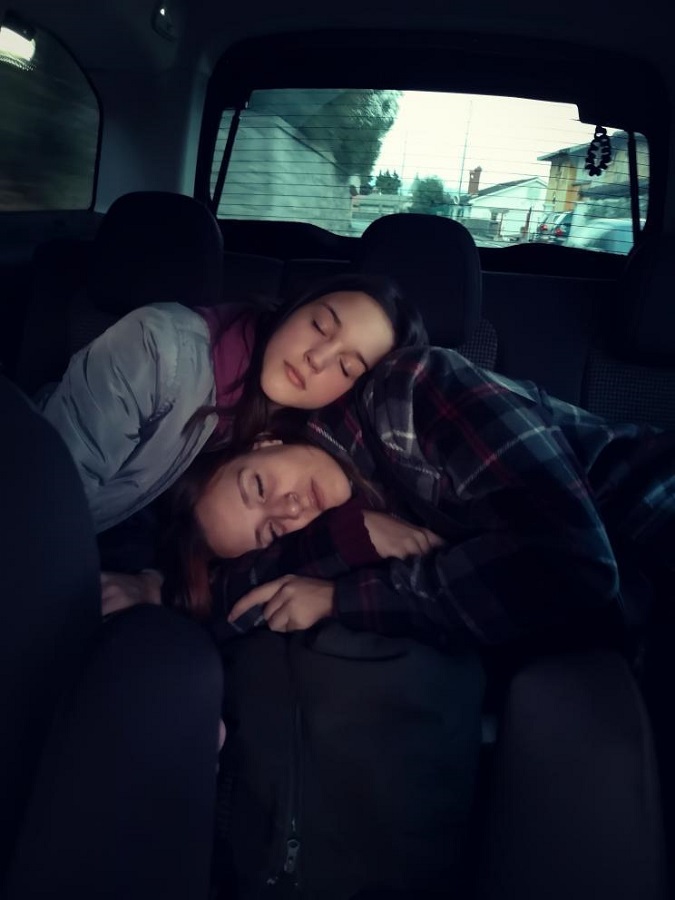
8. How do you think Croatia can better assist those who are looking to return to the Homeland?
I think Croatia is doing very well through the Scholarship program and the state office for Croats. However, I think that perhaps it could improve job placement since it is often difficult to find a job because you do not know where to look. The information inside and outside of Croatia could also be extended a little more since it is often necessary to ask about issues such as citizenship, residence, scholarship, etc., and the information is not so clear and accessible. There is not much promotion of the scholarship in Latin America, and many people do not know that this exists. They also do not know what papers are needed for citizenship and how it is processed within Croatia. To obtain this information, I had to ask many times and go to different offices, in addition to talking to my classmates.
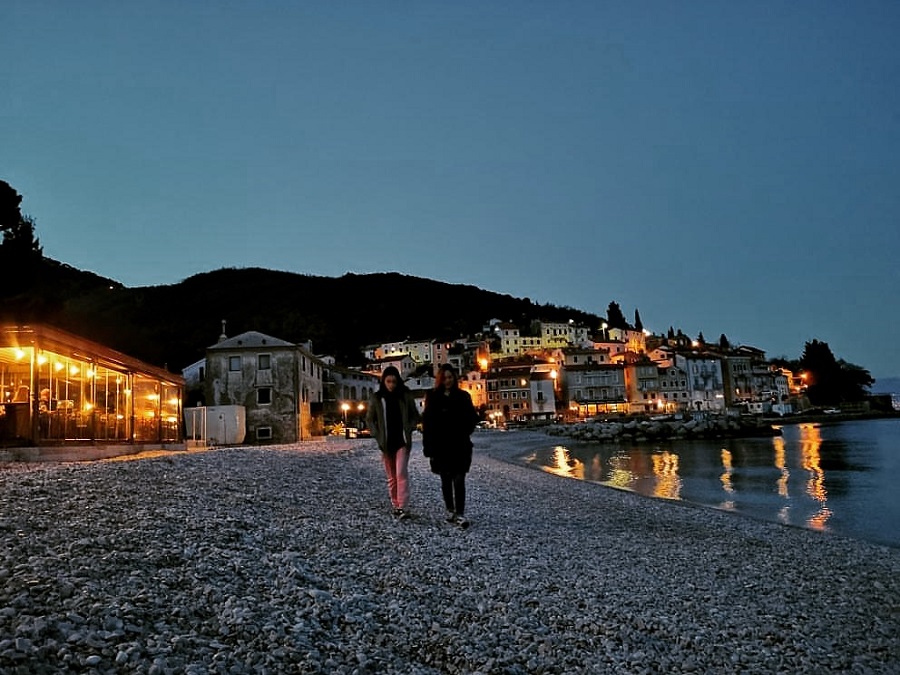
****
Thanks Nadia!
You can follow more stories in the Croatian Returnee Reflections series in our dedicated TCN section.
Would you like your returnee story - positive or negative - to be featured in this series? Contact This email address is being protected from spambots. You need JavaScript enabled to view it. Subject Returnee.
****
What is it like to live in Croatia? An expat for 20 years, you can follow my series, 20 Ways Croatia Changed Me in 20 Years, starting at the beginning - Business and Dalmatia.
Follow Paul Bradbury on LinkedIn.
Croatia, a Survival Kit for Foreigners will be out by Christmas. If you would like to reserve a copy, email This email address is being protected from spambots. You need JavaScript enabled to view it. Subject 20 Years Book
Croatian Returnee Reflections: Anna Abramovic, from Toronto CA to Zadar
September 23, 2022 - Whisper it quietly, but more and more people are relocating to Croatia from the diaspora. In a new TCN series, we meet them to find out how they are faring and what advice they have for others thinking of making the switch. Next up is Anna Abramovic, who moved from Toronto, CA, to Zadar.
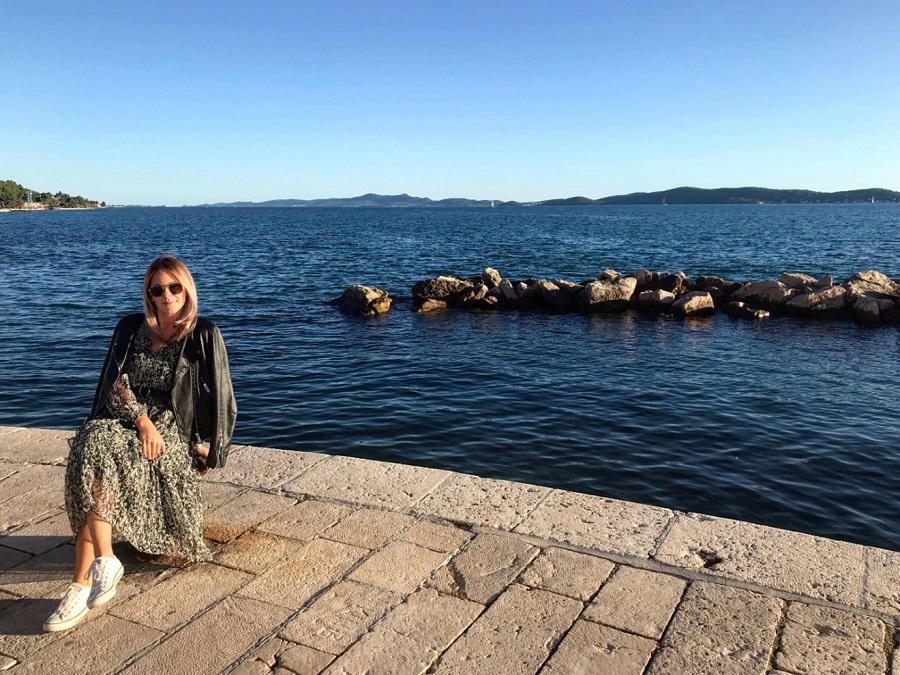
I was born and raised in Hamilton, Ontario, Canada, by Croatian parents who moved from Slavonija in December of 1989. I lived in Hamilton for 27 years, working as a Dental Assistant for 10, during which time I decided to go back to university and change my career path. After receiving my degree in Business Management and Marketing, I was introduced to a Company in Toronto that specializes in the development of Surgical Navigation Solutions. I immediately went through an interview process and boom-started my new job a few weeks later. I was happier than ever, but there was still something missing from my life. I was tired of commuting; I was tired of constantly trying to prove something to people around me. I was tired of the go-go-go lifestyle. I needed to slow down; I needed a change. I was getting fulfillment from my job, but that was the only place it was coming from. And to some, that may be enough, but to me, it wasn’t even close to enough. And that’s where Croatia comes in. Here I am, 3.5 years later, sitting in front of my laptop answering these questions from Zadar, where I get to have a coffee by the sea every day and enjoy life.
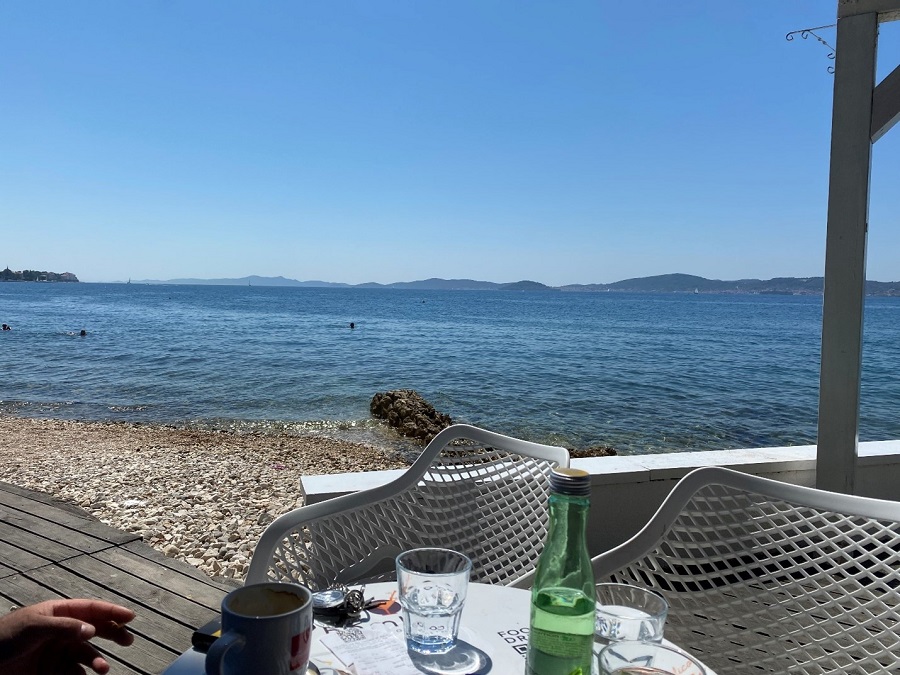
1. You made the switch to Croatia. Tell us a little about the decision process and how long it took for you to get on the plane.
I have wanted to move to Croatia since I was 16 years old. My father was a very proud Croatian, always pushing my brother and me to speak the language with our family and friends and to continuously learn about our heritage and roots. In our house, only Miso Kovac and Kico Slabinac could be heard playing on the radio. We traveled back as a family only once after the war in 1995. After that, all of my trips to Croatia were solo 3-month summer vacations. I would spend most of my time visiting my family in Slavonija, it was my favorite place to be and still is! I learned a lot about how my parents grew up and what they and my grandparents had to do to survive. Life for them was hard, but they were happy! They had everything they needed and more. And that was what I was searching for, happiness. To see someone truly happy, in my opinion, is rare. Canada is not what it used to be in the late ’80s and early ’90s, full of opportunities, “the American dream,” as they used to call it. These days, people are so focused on what material things they have, which car they’re driving, and who lives in a bigger house. What they are not focused on is living their life to the fullest and truly enjoying every single day.
The final decision came in my late 20’s when my partner at the time and I decided to take a Euro trip to scope out different countries and get a feel for what life could be like in Europe as an adult who is not on vacation. Of course, Croatia was always my first option, but the decision on where I would go first was in the hands of my partner, who was job searching. We took the trip in August of 2018. In December of 2018, he was flown into Germany for a weekend to interview for a job, which he practically accepted on the spot. And that was that we were moving to Europe! By March 2019, I was living in Germany. One step closer to Croatia.
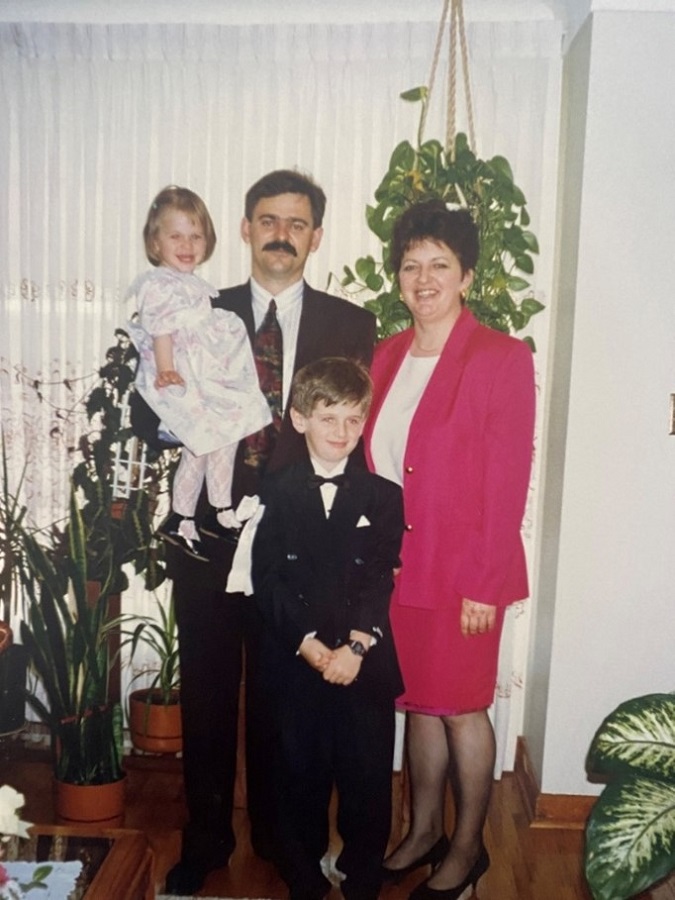
2. What did your family and community back home think of your decision at the time?
Even though my first destination was Germany, my family was my biggest support, especially my father. I felt as though I was finally living out his dreams. Moving back was something we always talked about as a family, but the timing was never right for the four of us. Both of my parents and my brother were extremely proud of the decision I was making.
The company I work for was also one of my biggest supporters. I consider myself very fortunate to work for a company that allows me to chase my dreams and supports me every step of the way.
Everyone else just thought I was Crazy, and they did not hold back on telling me that. Questions and comments were thrown at me from every direction. “You’re nuts, Anna” was a classic. “What are you going to do there?”. When I finally moved to Croatia in June 2019, the comments were: “Everyone from Croatia is moving OUT of the country, and you’re moving in!”. It was tough to hear the negative reactions of those close to me, but all I kept saying to myself as I am doing this for myself. Don’t get me wrong; it was a complete nightmare in the beginning. There were countless times when I sat on the bridge in Sibenik crying, asking myself why I came here. Those days were often after dealing with the Croatian bureaucratic system, or what there is of it anyways. When they say “Uvijek jedan papir fali” (One paper is always missing) they aren’t lying!!!
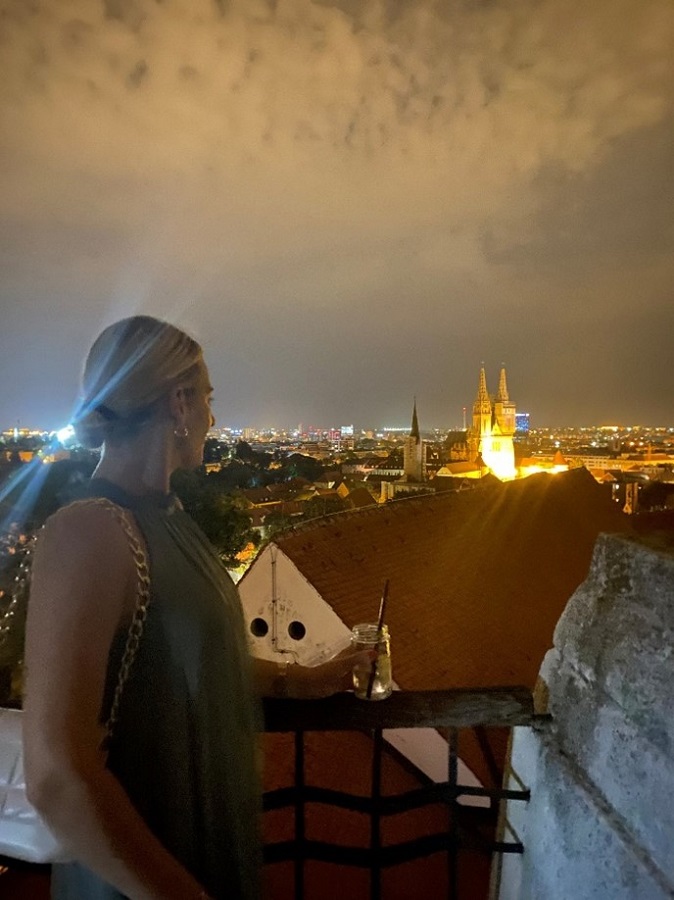
3. Where did you get your information about the realities of Croatia prior to coming?
If I’m being completely honest, I didn’t. And I had no idea what was waiting for me. I did not know any returnees to ask them what it was like. Of course, my family in Croatia also thought I was crazy for moving here. However, they did not understand the harsh reality I was coming from. In Croatia, people complain all the time about how the life they have here is not ideal and that they dream of leaving this Country to make a better future for themselves. The problem with that is, any country you move to, be that Germany, Austria, or Canada, you’re still going to have to work your ass off to get what you want and to make something of yourself. They didn’t know that I was commuting on a 6-lane highway for 3 hours in one direction from Monday-Friday and that most of my days were spent in my Car. They didn’t know that I had to call my friends and “book” a coffee or dinner date weeks in advance because nobody had time. They especially didn’t know what 2 meters of snow and minus 30 in December looked like!
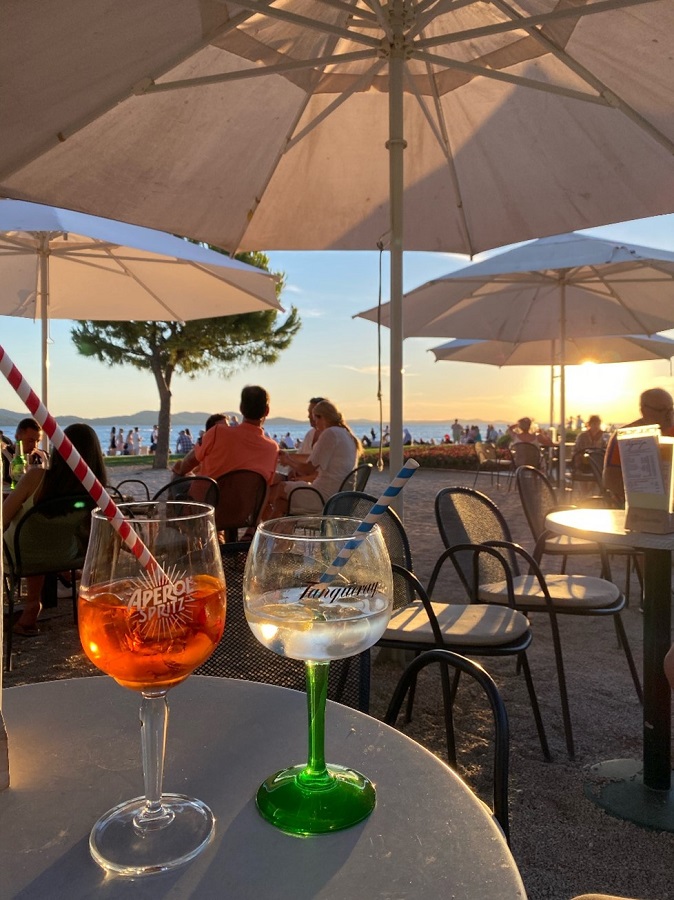
4. What were you most nervous about making the switch? What was your biggest fear, and what was the reality of what you found?
I honestly can’t say that I had any fears about coming to Croatia, or Germany for that matter. I was ready to embrace change and accept Croatia with my arms wide open. And with that attitude, I was accepted by everyone and welcomed wholeheartedly by the people with who I have crossed paths during my time here.
5. Think back to the time before you arrived. What were your perceptions about Croatia, and how were they different from the reality you encountered?
Every time I left Croatia after one of my trips, I would always cry on the plane and wished I was staying longer. My perception had always been that no matter your financial position, people are generally happy and content with their lives. They don’t have much, but there are always 10 kunas in their wallet for a coffee. The people here they're not living to work, they are working to live. That perception has not changed since I’ve been here. If anything, it has become more apparent. Of course, people work hard and value their jobs, but their lives are filled with love and happiness, not dollar signs.
6. You are still here, so obviously, the pros outweigh the cons. Tell us about some of the things that you love about being in Croatia, as well as some of the things you don't like.
If I could describe Croatia in one word, that word would be Laganini (Easy). There is not as much pressure put on one here as there is in North America. Life is relaxing and enjoyable. I love that every day, no matter the season, I can walk to the Sea, enjoy a coffee on the beach, and take in the breathless beauty of this amazing Country. No matter where you go, the people are friendly and always smiling. Neighbors are always happy and willing to lend a helping hand.
However, behind all of Croatia’s beauty lies the very disorganized bureaucratic system. In Canada, I was used to going to Service Ontario, where I could get my health card, driver’s license, and car sticker renewed all by one person in one day. In Croatia, it’s almost impossible to get someone on the phone or to get information about the papers you need to renew. Never mind the fact that there are about 3 different places you need to visit, and 5 different people all somehow doing the same but different job that you need to speak with before you can even go to the police station to renew a personal document.
7. What advice do you have for others thinking about making a move from the diaspora?
There is no better time to do it than now. Stop waiting for tomorrow or Friday. Stop waiting for your kids to grow up or to get that better job. Life doesn’t wait for you, and time moves quickly. Trust me; it will be the best decision you ever make!
8. How do you think Croatia can better assist those who are looking to return to the Homeland?
I think one of the biggest things Croatia lacks is marketing. By simply opening their platforms to provide the information people are looking for would be one giant step in the right direction.
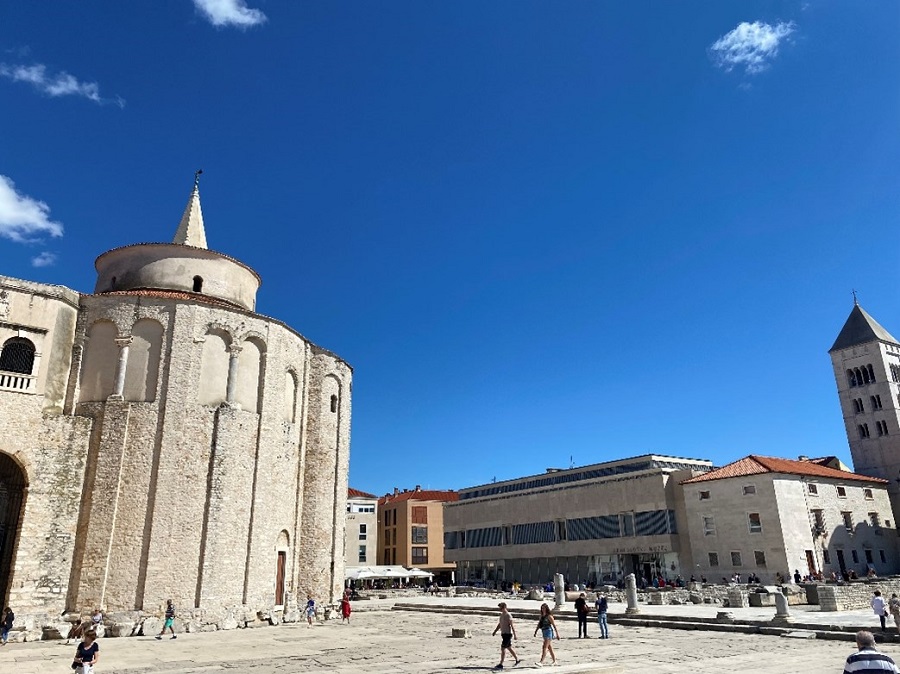
****
Thanks, Anna!
You can follow more stories in the Croatian Returnee Reflections series in our dedicated TCN section.
Would you like your returnee story - positive or negative - to be featured in this series? Contact This email address is being protected from spambots. You need JavaScript enabled to view it. Subject Returnee.
****
What is it like to live in Croatia? An expat for 20 years, you can follow my series, 20 Ways Croatia Changed Me in 20 Years, starting at the beginning - Business and Dalmatia.
Follow Paul Bradbury on LinkedIn.
Croatia, a Survival Kit for Foreigners will be out by Christmas. If you would like to reserve a copy, email This email address is being protected from spambots. You need JavaScript enabled to view it. Subject 20 Years Book
Croatian Returnee Reflections: Marijana Begonja, from Mississauga CA to Zagreb
September 23, 2022 - Whisper it quietly, but more and more people are relocating to Croatia from the diaspora. In a new TCN series, we meet them to find out how they are faring and what advice they have for others thinking of making the switch. Next up is Marijana Begonja, who moved from Mississauga, CA, to Zagreb.
My name is Marijana Begonja. I was born in Zadar, Croatia, in 1987. In 1988, my family moved to Mississauga, Ontario, Canada. At 21, I decided it was time to try something I’d thought a lot about before: moving to Croatia. First, I moved to Dubrovnik to complete my university education; then, I moved to Zagreb to pursue my professional career. Currently, I work as a Senior Sales Manager at Procter & Gamble. My family is scattered between Croatia and Canada, with my sister, brother-in-law, and their 3 children living in Toronto, my brother living in Zagreb, and my parents spending their retirement going between Privlaka (our hometown), Mississauga, and Zagreb. We hope one day that we’ll all be permanently together in Croatia.
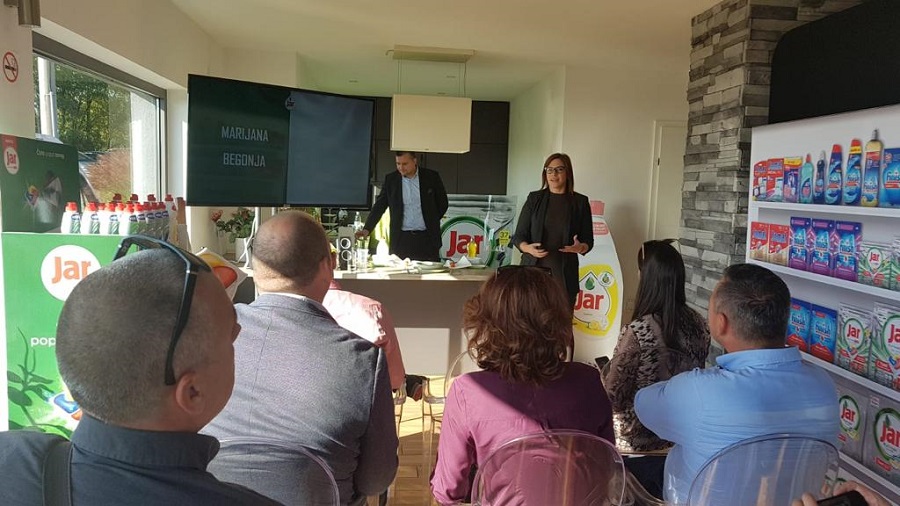
1. You made the switch to Croatia. Tell us a little about the decision process and how long it took for you to get on the plane.
When we moved to Canada, I was a baby, but my older sister was 9, so she always had the desire to move back to Croatia and made a move in 2004. At the time, I was in high school, and she was looking into universities in Croatia for me. However, as I’m not a huge risk taker, I ended up deciding to go to university in Canada for graphic communications management. At some point, I realized it was not something I wanted to do for the rest of my life, and started working at a bank. At 19, working at a bank and living from home, I thought I didn’t need university, so I dropped out. My parents were adamant about me getting a university education as they knew the potential was there and worked very hard in Canada to secure us a bright future. They both even worked 2 jobs at a time, so I felt I couldn’t let them down. I decided at that point it was now or never and applied to a university in Croatia. Once I was accepted, the decision was made. It was a surprisingly short decision; in November 2007, I dropped out of university in Canada, and in August 2008, I was on a plane to Croatia.
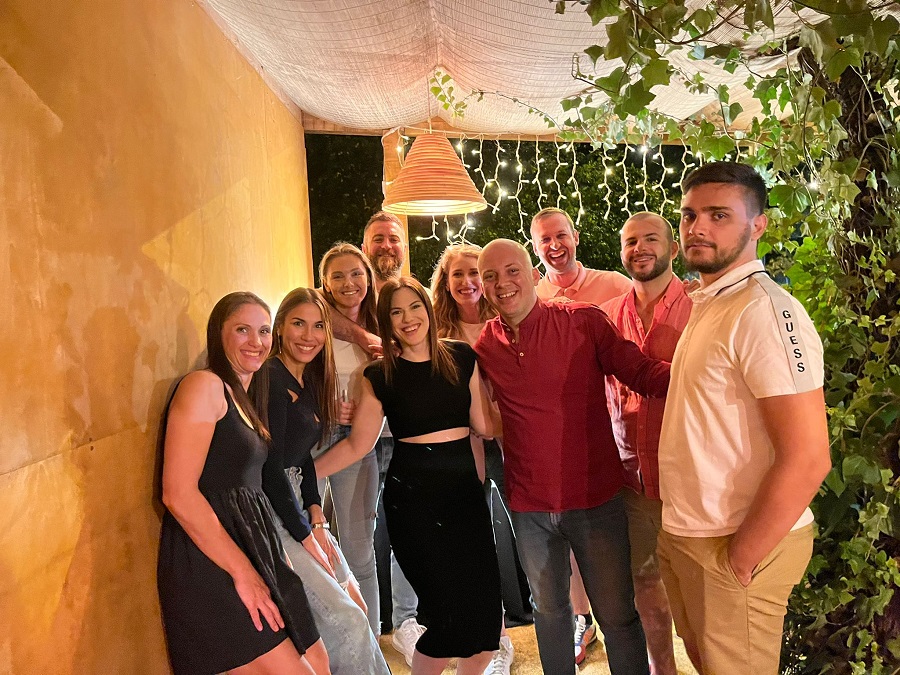
2. What did your family and community back home think of your decision at the time?
Overall I had huge support across the board. My father was probably the most supportive as it was his dream for us to move back (we were only supposed to move to Canada temporarily, but unfortunately, the war changed this). He immediately started looking for apartments for me to rent. My mom, knowing my nature of not liking change, was supportive as long as I was happy but had a feeling I might change my mind after 2 weeks. She was also happy that her daughters would be together again but still sad that another child was moving away. The hardest part was leaving my little brother behind. He was 13 at the time, and both my sister and I had a big role in raising him given the age gap, and suddenly at a critical time in his life, he would be alone. Of course, my sister was the most excited as we would be reunited once again and started making a million plans for us to do together. My friends were fantastic and made sure my last few months in Canada were ones to remember and made sure to keep in contact once I left. We had multiple going away parties and even started some traditions that still last to this day. My boss at the bank where I was working at the time was extremely supportive despite my resigning shortly after getting promoted, telling me this was something I really needed, meaning it was time for me to step out of my comfort zone.
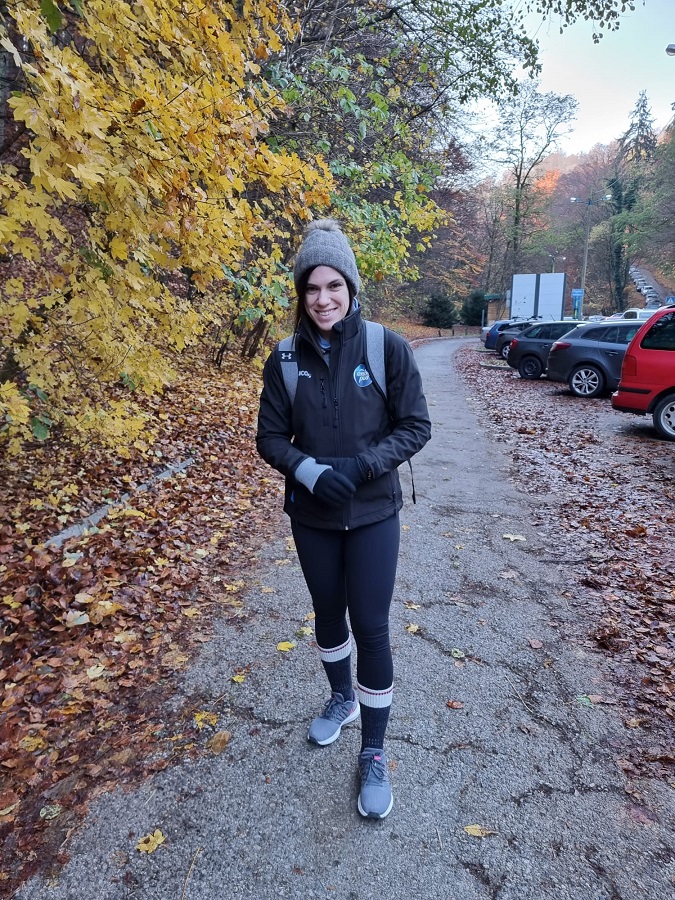
3. Where did you get your information about the realities of Croatia prior to coming?
My sister is probably the best big sister anyone in the world could ask for. If it wasn’t for her paving the path for me, I never would have made a move. She helped me with a lot of the administration, documents, setting up a bank account, etc. She went everywhere with me, making the process easy for me, whereas when she came, she had to figure it all out on her own. She gave me a lot of advice on all aspects of life in Croatia, so I would say I was well prepared.
4. What were you most nervous about making the switch? What was your biggest fear, and what was the reality of what you found?
After spending two years at university in Canada and deciding not to continue and changing my direction into economics, I pretty much lost those two years. I was afraid that if I failed, I would lose more time in my life and have to start somewhere from scratch again. My second greatest fear was letting my family down. Throughout my entire life, they were my support system, and if I realized I made a mistake at some point, I was worried about letting them down. Luckily for me, very soon after moving back, I knew I was going to stay for good. The lifestyle was much more fit to my personality, honest friendships which quickly formed the ability to meet with someone at any given point for a coffee. As an extrovert, this was a huge positive for me. At university, I was quickly getting good grades, and in my first semester, I made the dean's list, so I realized I finally found a path suited for me.
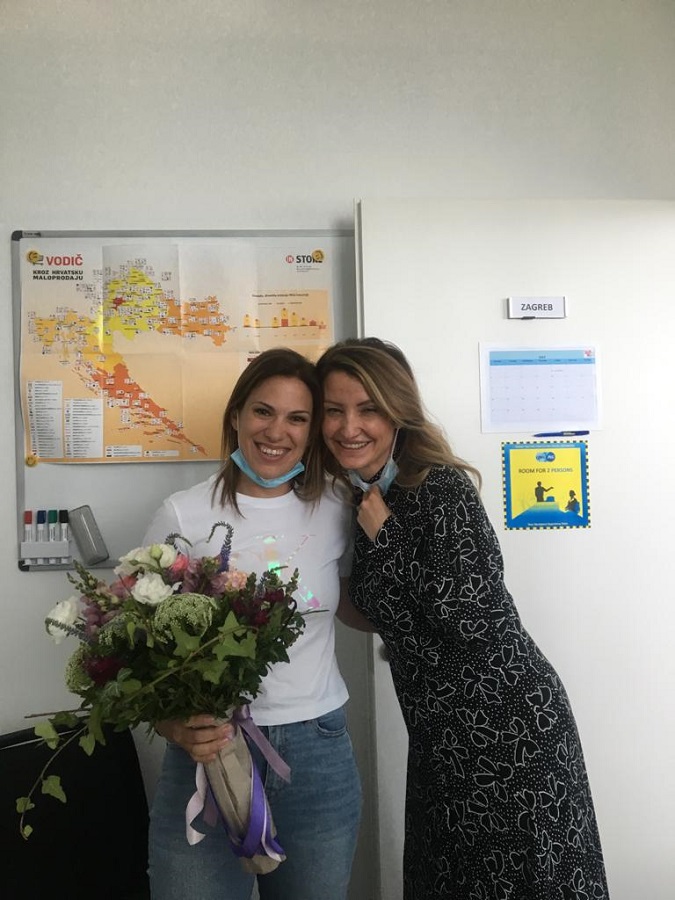
5. Think back to the time before you arrived. What were your perceptions about Croatia, and how were they different from the reality you encountered?
I have to commend my parents here because, thanks to them, I would say my perceptions were very realistic. Unlike a lot of other diasporas, they weren’t so focused on teaching me the history (which, of course, they did), they encouraged me to understand the present situation in Croatia throughout all the years and the progress it was making. They didn’t focus so much on the difficult times such as the war but focused on the prosperity post-war. I had cousins my age in Croatia on my mom’s side, and she encouraged me to stay in contact with them, which helped a lot. My dad encouraged me to discover things such as current music and things that would interest me. So thanks to all this, I would say my perceptions weren’t way off. There were two things for which I would say my perceptions were a bit different than reality. Firstly being from Zadar, for me, Dalmatia was Croatia, and all of the beauties of Croatia were in Dalmatia. Thanks mostly to my job, I had the pleasure of exploring all parts of Croatia, both rural and urban, and realized that Croatia has so many beautiful gems across the country, and Dalmatia is just one part of it. The second thing is I knew my Croatian wasn’t perfect and was afraid I would get made fun of a lot for this and tried to hide it as much as possible. It was the exact opposite, people find it endearing, and to this date, I embrace my “undefined” accent.
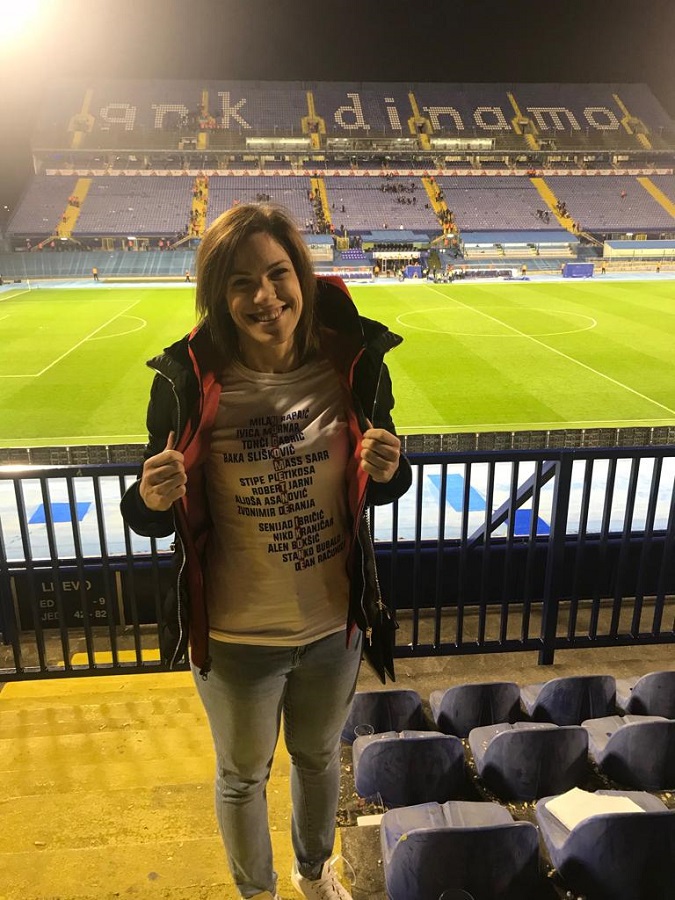
6. You are still here, so obviously, the pros outweigh the cons. Tell us about some of the things that you love about being in Croatia, as well as some of the things you don't like.
Correct, the pros outweigh the cons. The biggest pro for me is the overall social aspect. Firstly, people are more honest in Croatia. Let me give an example – in Canada, if you run into an acquaintance, you say “how are you?” to each other, but really it’s just a formality, and if you answer anything other than “good, thanks”, you’re weird. In Croatia, though, you answer honestly, and you engage in conversation. Friendships and relationships, I would say, develop faster because a lot of personal time is dedicated to socializing, and it’s more than just coffee as the perception. It’s going for a walk, playing a sport together, etc.
Geographically Croatia is perfect. In one day, I can be at the top of Sljeme, and the next day it’s a few hours' drive to the seaside. Croatian nature offers something for everyone. Also, being located in Central Europe, so many destinations are easily accessible. Weekend trips are the norm, whether in Croatia or outside the borders. I feel that despite Canada being a multicultural country, I have gained so much more cultural knowledge of the world while living in Croatia. In general, I feel more intelligent about my knowledge of the world since moving here. There’s much more curiosity to discover things outside the world we live in here rather than in Canada.
One other thing I feel is significantly better in Croatia than in Canada is the security financial institutions provide. Croatia was using chip cards in masses while Canada was still in magnetic strips. Additionally, as internet banking and apps developed, I feel like Croatia was always a step ahead in providing great services while still maintaining high security. It seems to me that cases of identity theft and such were more frequent in Canada, but this could be due to the nature of my job in Canada.
The main thing that I wish I could change in Croatia is customer service. In Canada, a sales associate in stores is extremely friendly (too much, in my opinion) and constantly asks you if you need help. In many stores in Croatia, you’re lucky if you get “izvolite” (here you go). I guess being exposed to two extremes, I wish Croatia would find itself in the middle. Especially when it comes to escalations. In Canada, most disputes can be resolved on the spot or over a phone call. Whereas any complaint or dispute always has to be handled in writing in Croatia and can take months to resolve. Also, in Canada, the question “can I speak to your manager” usually results in a resolution, but in Croatia, the answer is always no.
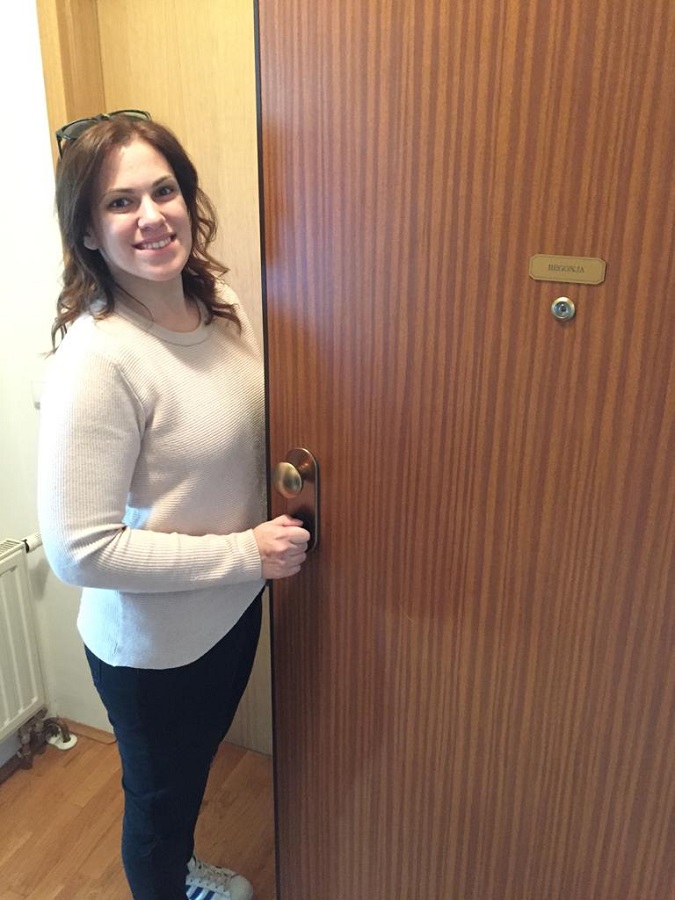
7. What advice do you have for others thinking about making a move from the diaspora?
Don’t expect life in Croatia to be just like your 4-week summer vacation in Croatia. A lot of people come on vacation and think I could live here and make a move and realize it’s a lot different than they realized. Another thing is to avoid comparisons. In my case, Canada and Croatia are two widely different countries, from history to economics. You can’t compare, for example, a salary like for like because yes, in Canada it will be absolutely much higher. There are so many things that go into the prices and costs of things that simply aren’t comparable. Why I say this is yes, probably if you’re coming from a diaspora, you’re coming from somewhere with a higher income, but in most cases, the cost of living is also significantly higher so really, what you make of that salary is up to you. For example, after only 3 years of working full-time in Croatia, I became a homeowner relatively close to the city center. If I took the same parameters into account in Canada – the same job at the same company, similar location to the city center, similar size, there is no way I would be able to be a homeowner that quickly. So yes, in Canada, I would be making much more, but at what expense?
One more important piece of advice – don’t listen to naysayers and people giving their negative advice. I remember when I started job searching here, everyone told me I would not find a good job without a connection. I made it my mission to do the exact opposite, and after only 3 months of searching, I was working at an entry-level position at my current company and have made significant strides in my 8 years in the company without knowing a single person. My advice is anyone who wants to work in Croatia can work. The path might be rougher, but regardless I genuinely believe that anyone can succeed.
8. How do you think Croatia can better assist those who are looking to return to the Homeland?
There are two significant things - one is directly related to returnees and the diaspora, and the second is a bit broader.
In relation to returnees and the diaspora, Croatia should try to work more with the communities outside of Croatia and their education in Croatia. As a kid, my parents enrolled me in all the activities the Croatian community had to offer – folklore, tambura, Saturday Croatian school, and to be honest, most of my knowledge of Croatia, the culture, and the language didn’t come from there, it came from home. Grades 1-11 of Croatian Saturday school, and I never once learned padeži (cases). I can't blame the diaspora communities – often, it's 1st 2nd, and 3rd generations trying to keep the Croatian culture alive, and for them, I have respect. However, if they were given more help, guidance, and resources from Croatia, we could have 5th generation Croatians speaking Croatian as if they've lived here and know that Ljiljana Nikolovska is, in fact, not the current lead singer of Magazin or that drmeš (folklore) is not danced at all weddings in Croatia. So much of what we know about Croatia is learned at home, and I am so thankful that my parents made an effort to teach me that being Croatian wasn't about hating Serbians, tattooing the GRB (emblem) on yourself, or being conservative. is what makes you Croatian. Croatia needs the diaspora to help build a prosperous future, but they need to enable them with the knowledge of what Croatia is in 2022, not what was decades or centuries ago.
The other thing Croatia needs to do is to make it a more investable country to make it attractive for returnees. In order for us to grow economically, much more significant step changes need to be made. Yes, they've made it attractive for digital nomads, but unfortunately, this attracts a small niche of people, and as mentioned, they are nomads. Croatia, especially with the declining population, needs sustainable solutions. So much onus is placed upon the employers through minimum wage increases or not taxing certain benefits given to employees, but still, the investment needs to come from the employers. In order to generate economic growth in an economy with a declining population, the Croatian government needs Croatians to spend. By reducing taxes, it gives higher purchasing power, and by alleviating the financial struggle of citizens by easing taxes, the government will still get the funding back through consumer spending. This, as a result, would make Croatia more attractive to those looking to return as they wouldn't take as big a salary cut moving to Croatia, and would make Croatia a much more attractive company for investment, therefore creating more jobs. I speak of this in a really simplified manner, but in order for people to return, Croatia needs to be more economically attractive, and I see this as the first step in that direction.
****
Thanks, Marijana!
You can follow more stories in the Croatian Returnee Reflections series in our dedicated TCN section.
Would you like your returnee story - positive or negative - to be featured in this series? Contact This email address is being protected from spambots. You need JavaScript enabled to view it. Subject Returnee.
****
What is it like to live in Croatia? An expat for 20 years, you can follow my series, 20 Ways Croatia Changed Me in 20 Years, starting at the beginning - Business and Dalmatia.
Follow Paul Bradbury on LinkedIn.
Croatia, a Survival Kit for Foreigners will be out by Christmas. If you would like to reserve a copy, email This email address is being protected from spambots. You need JavaScript enabled to view it. Subject 20 Years Book


